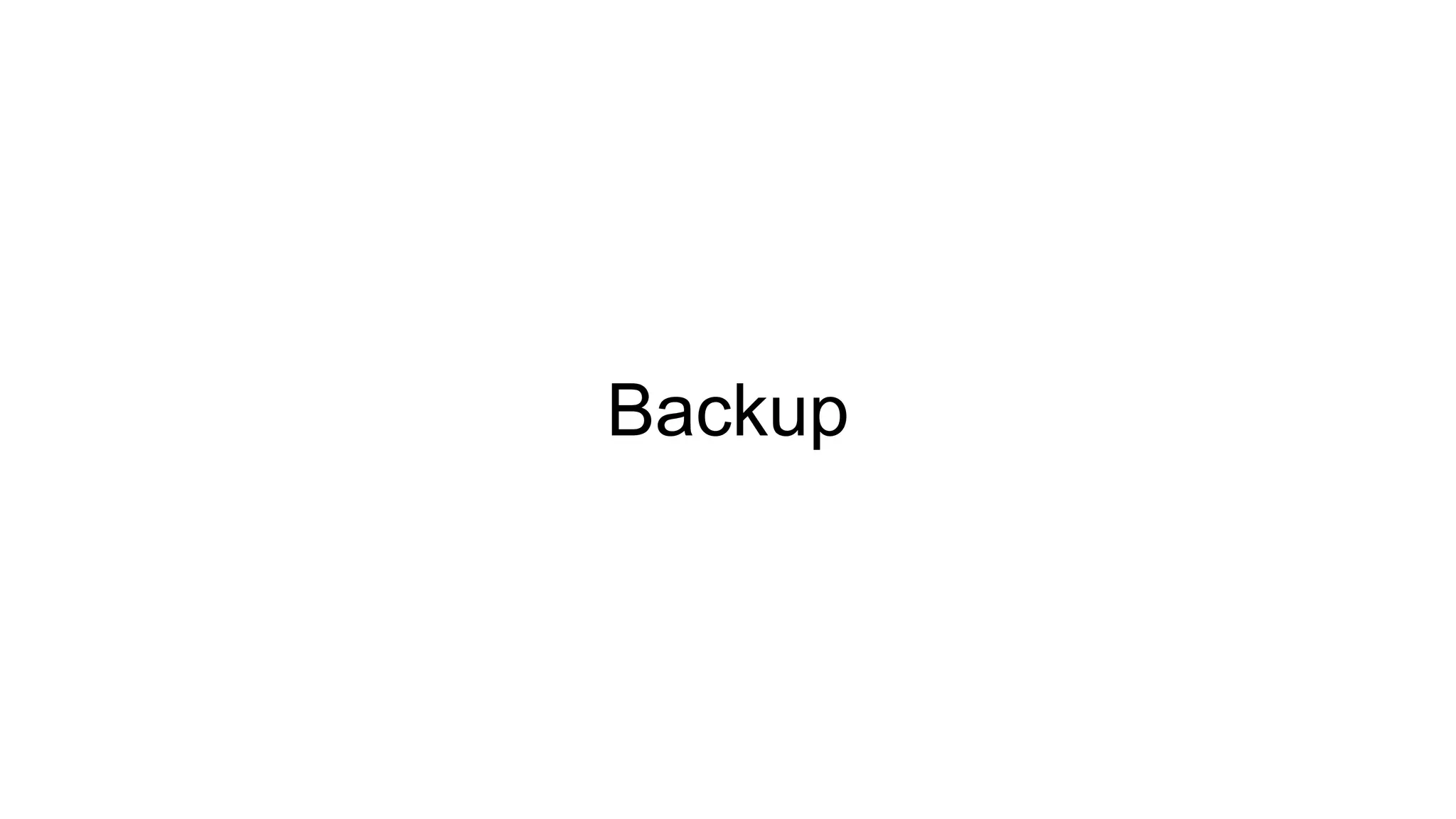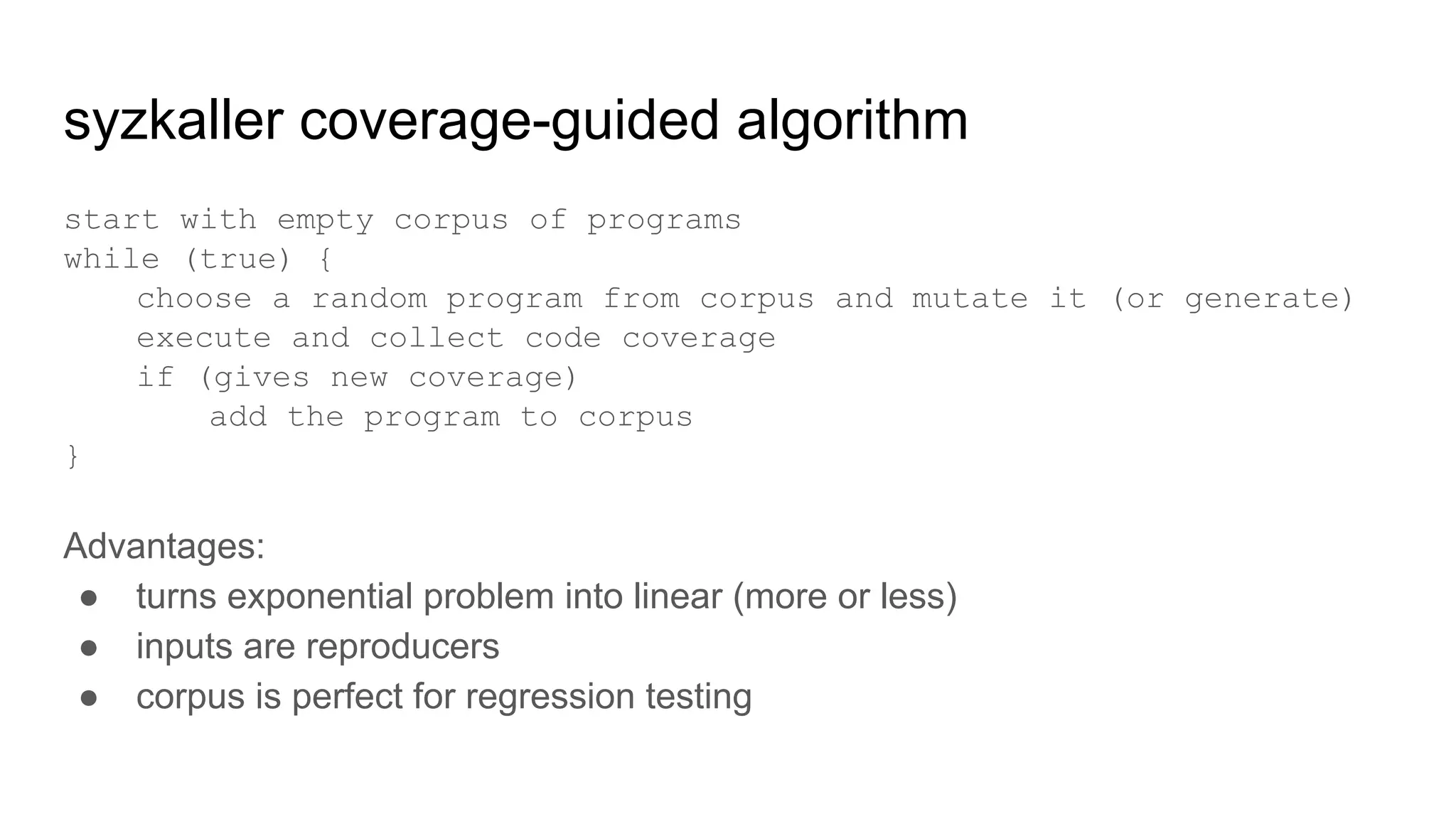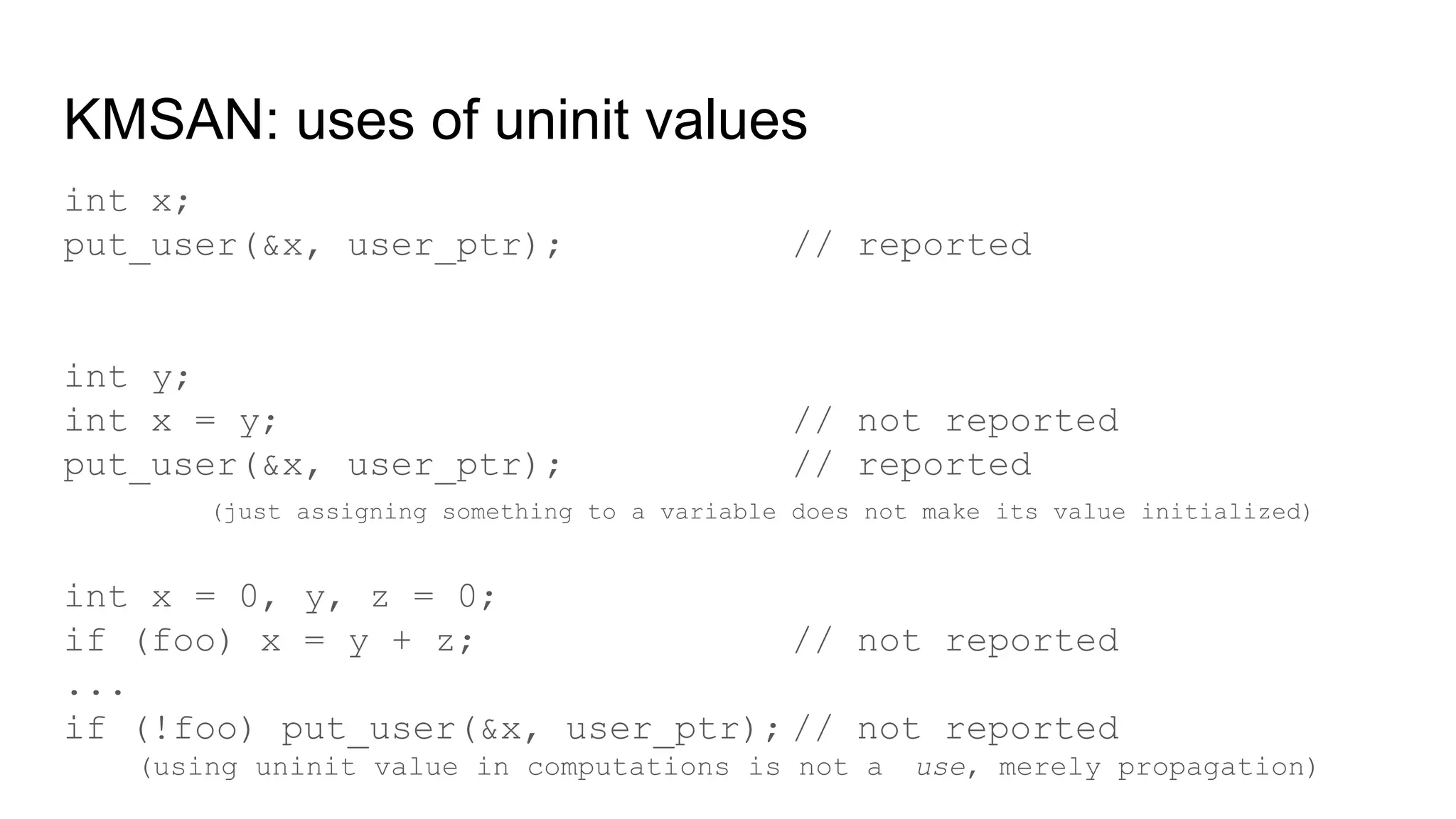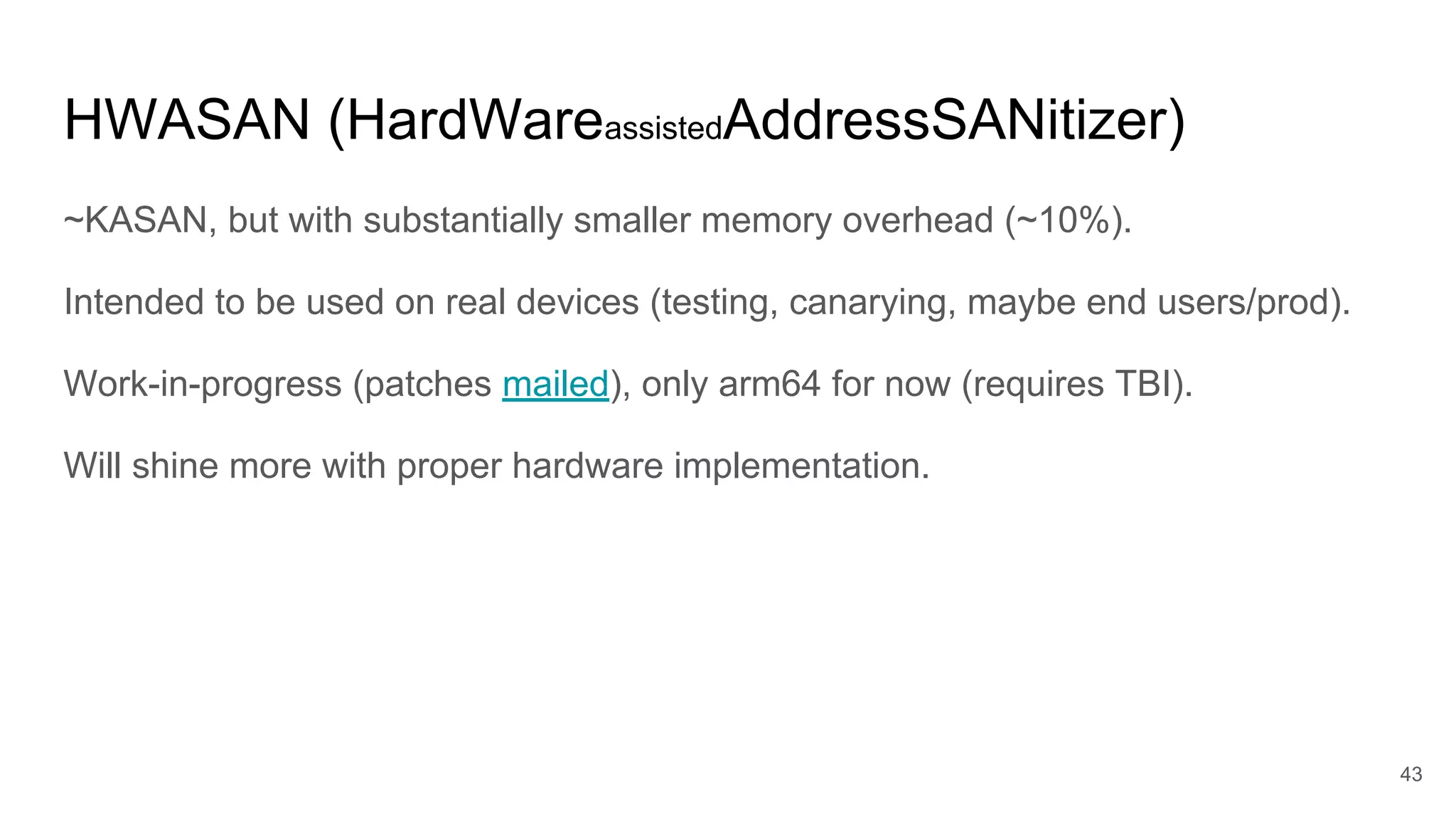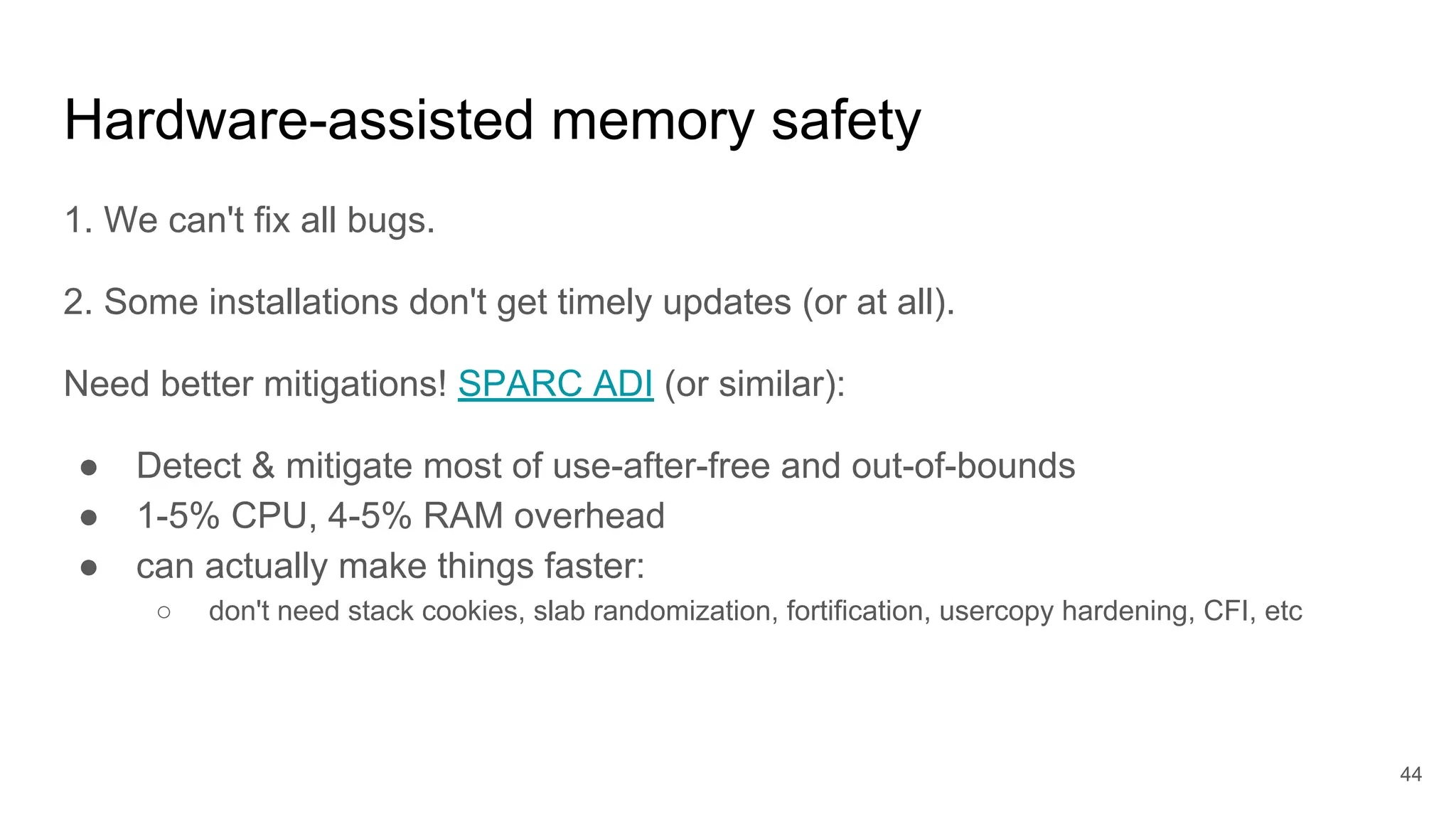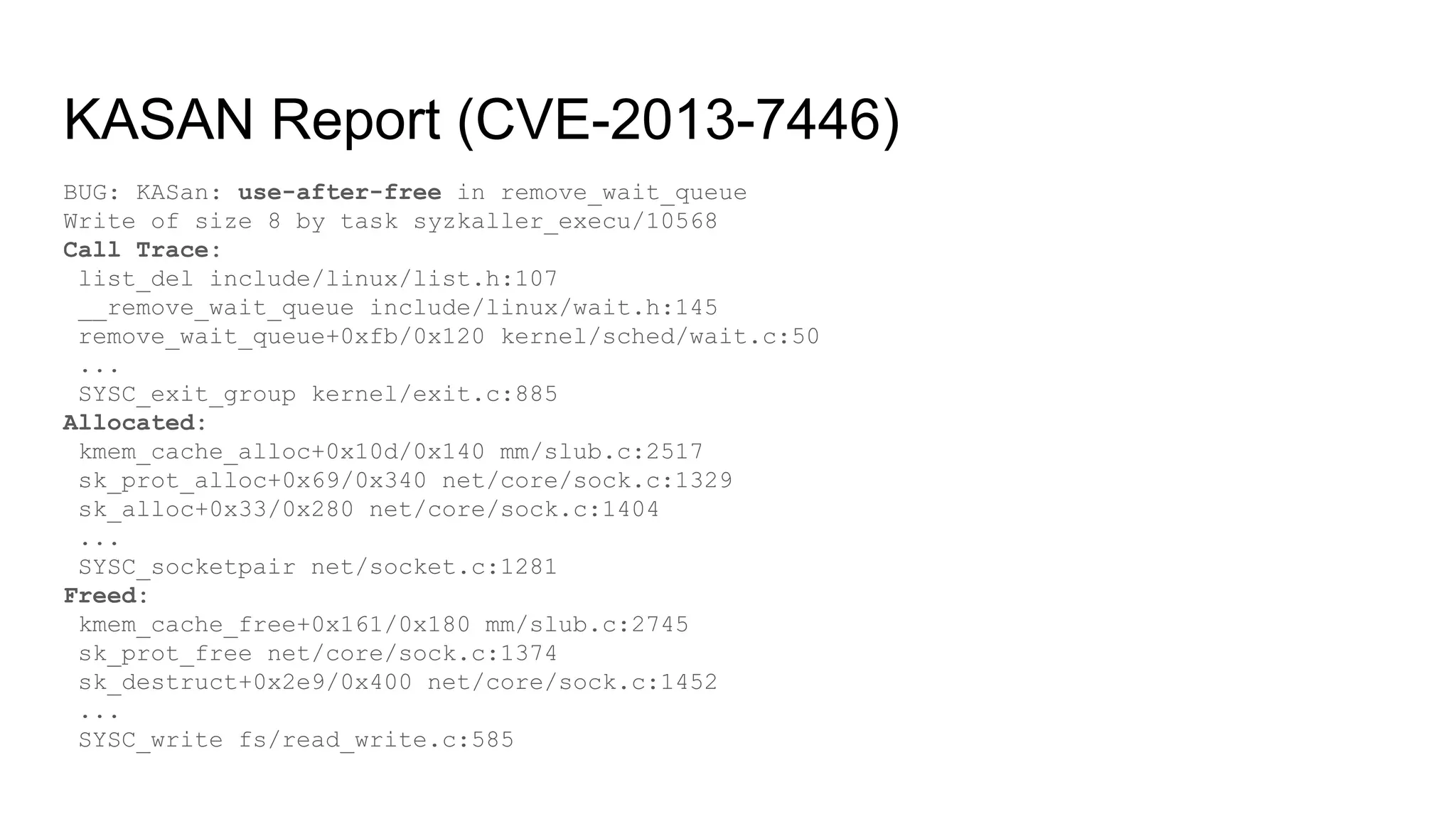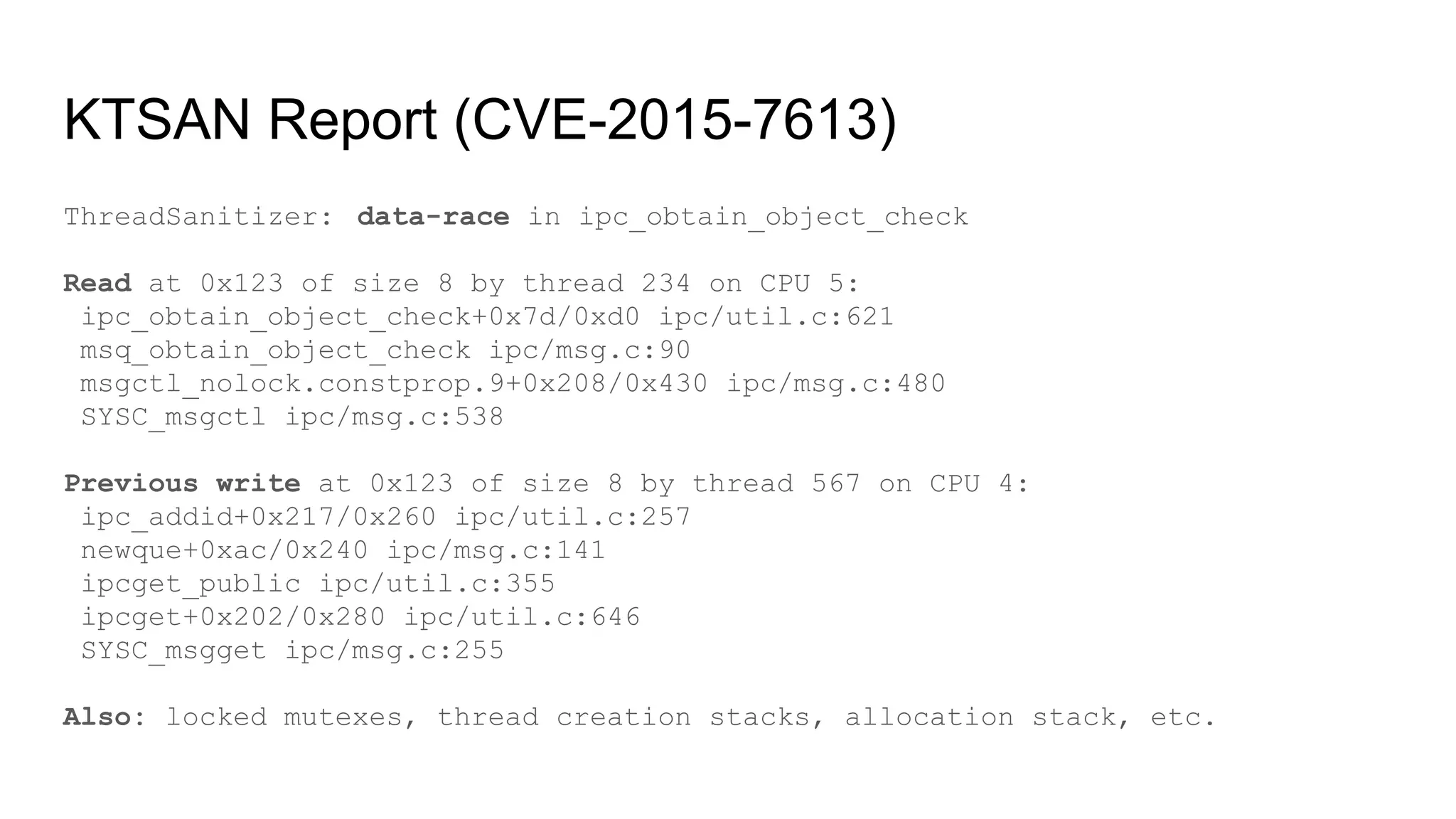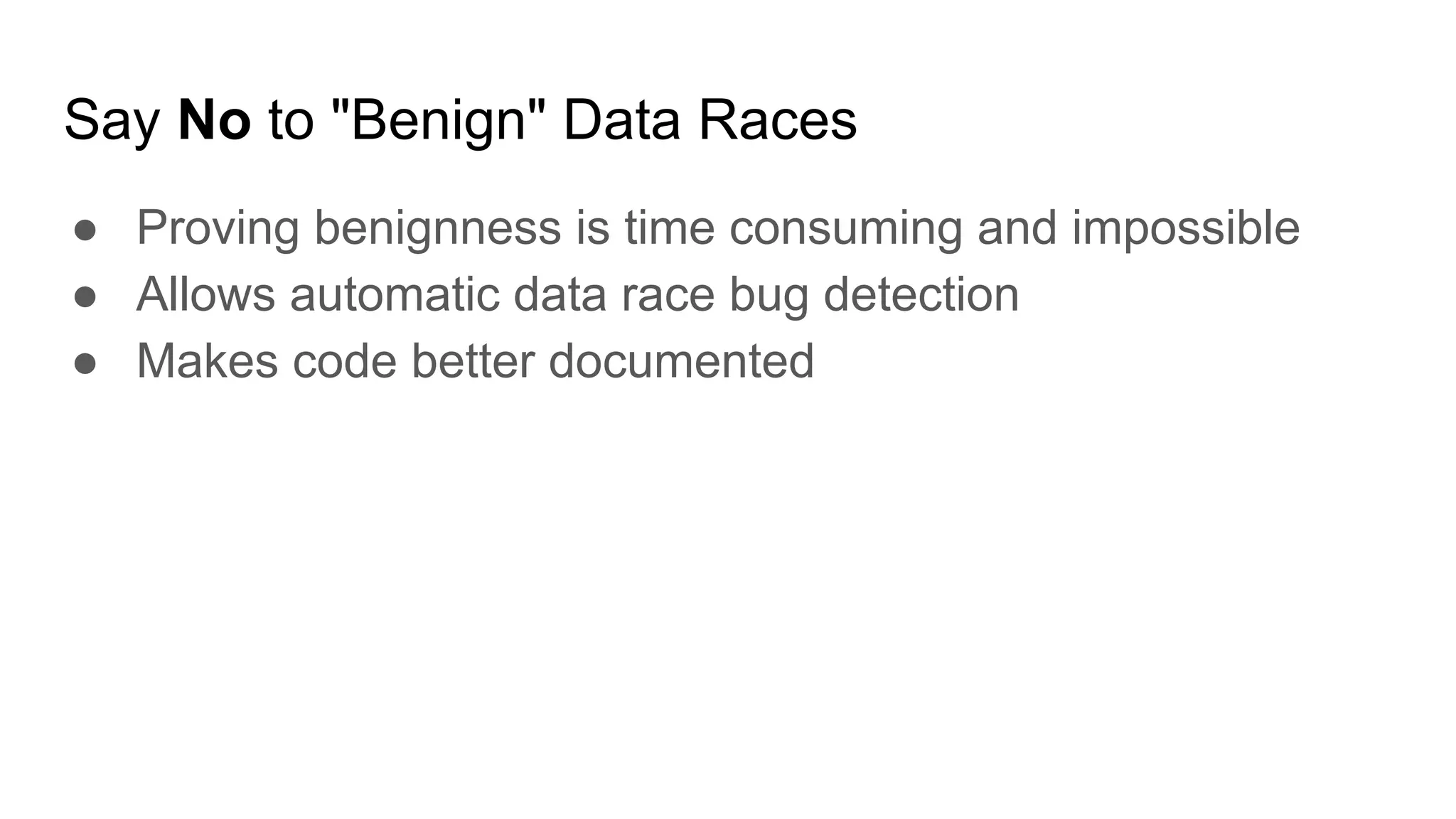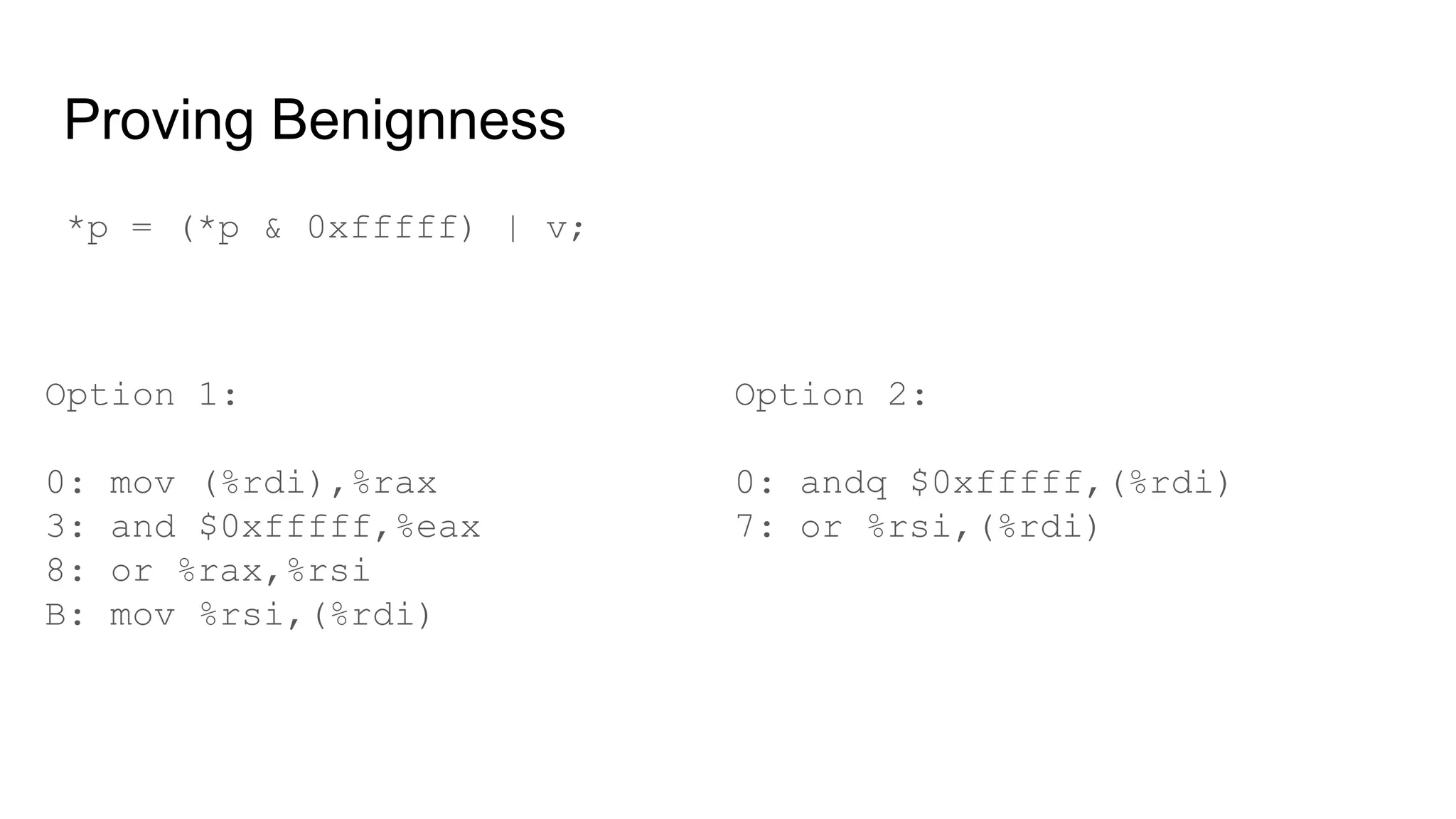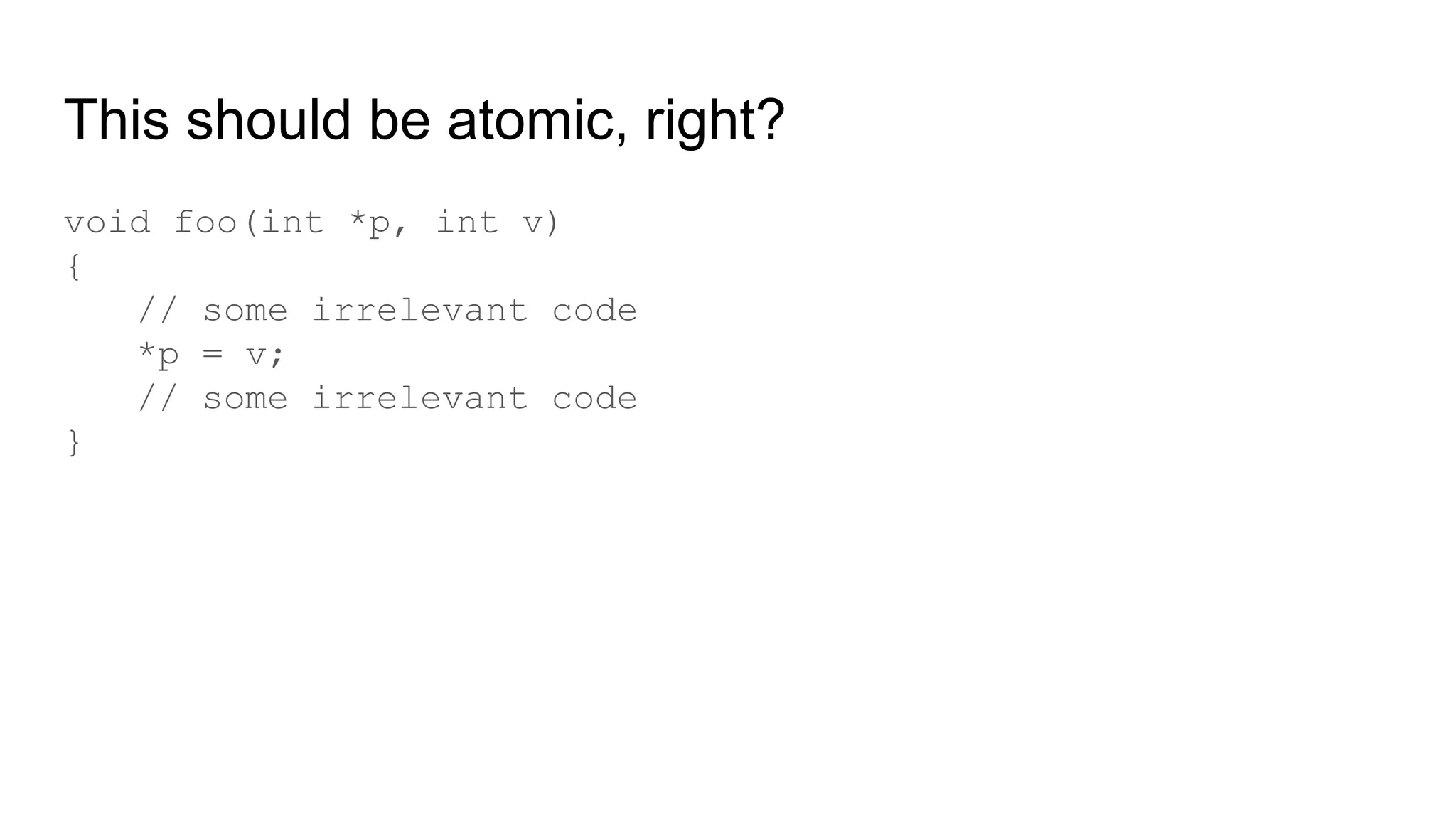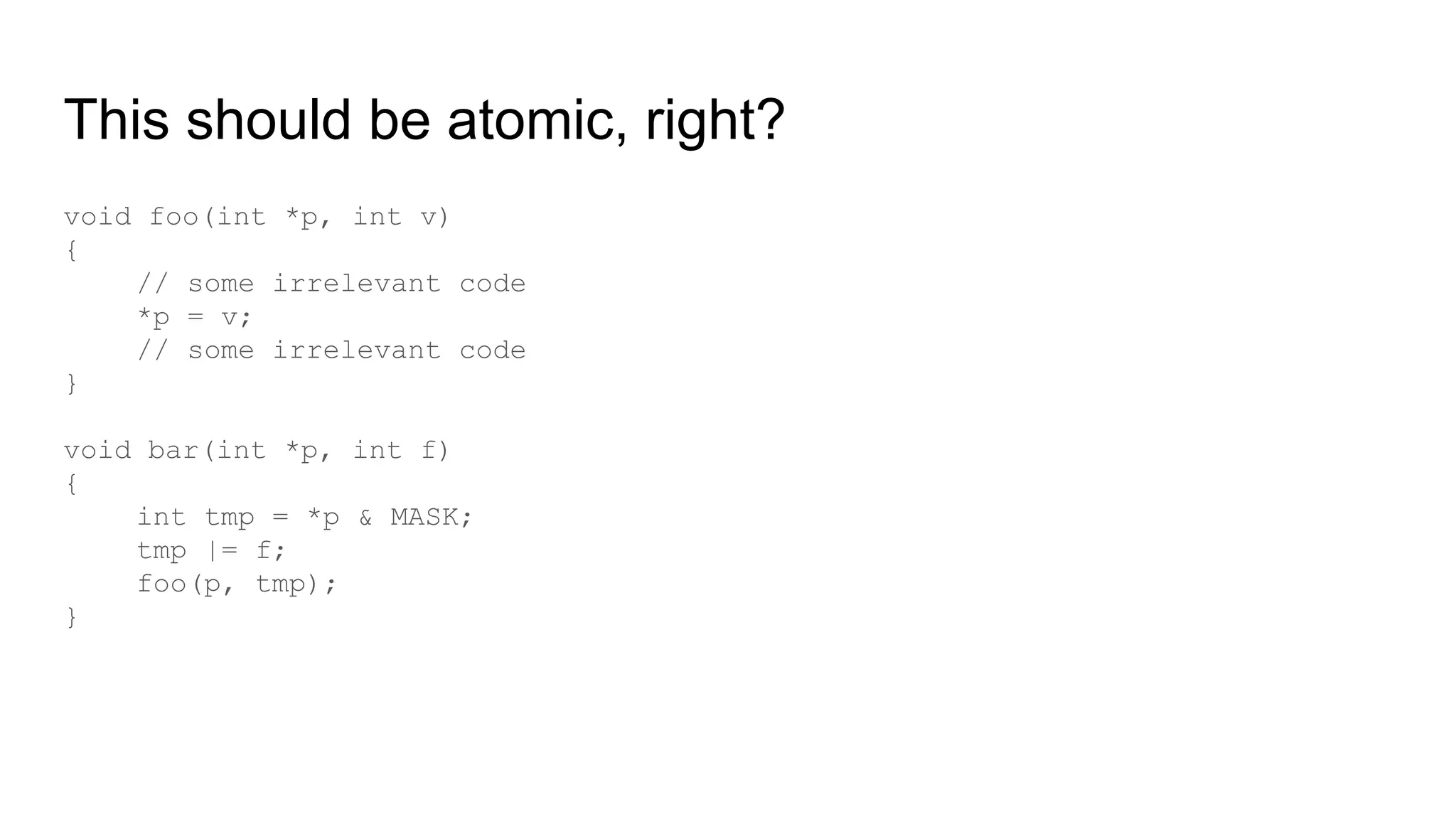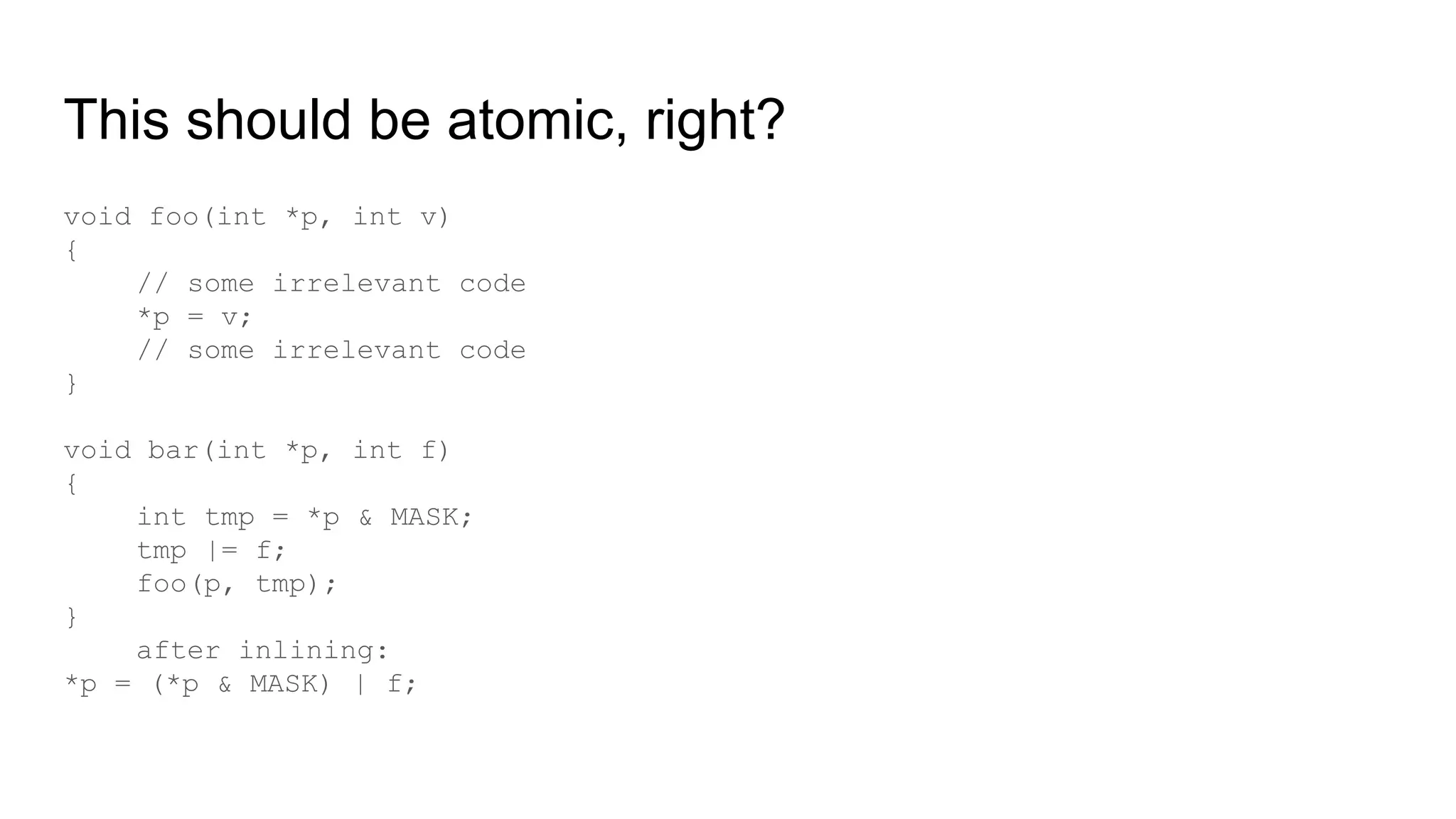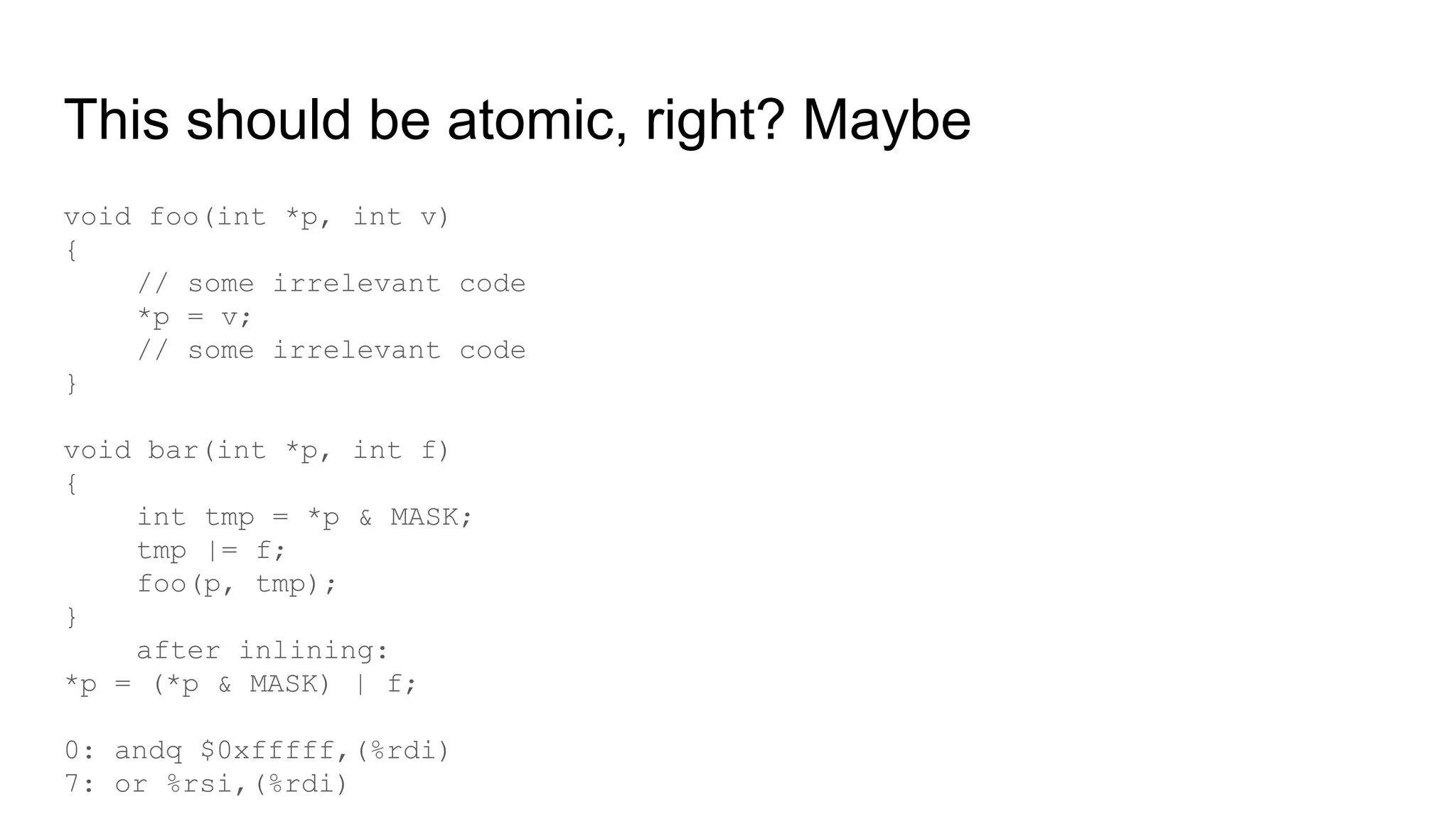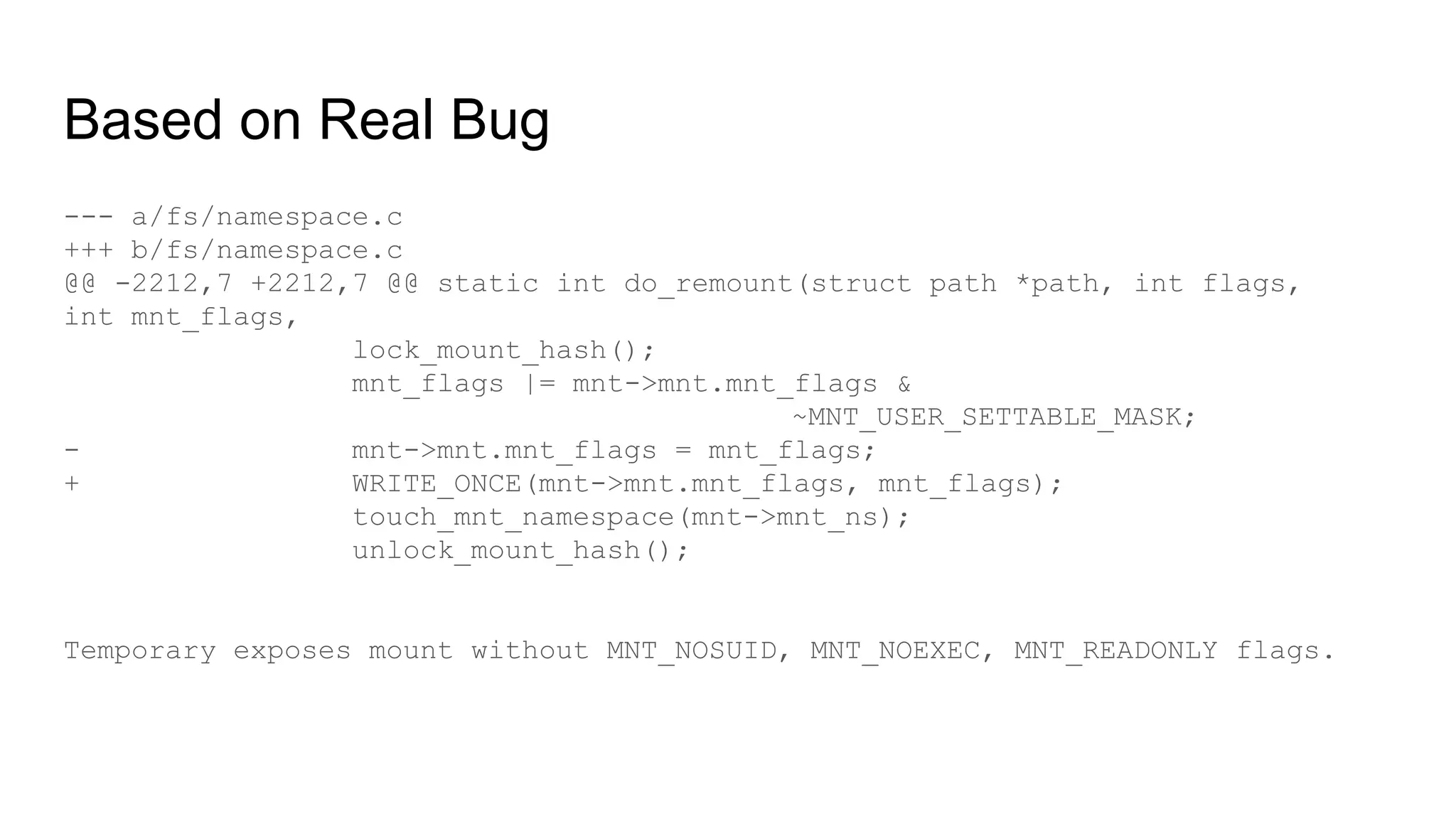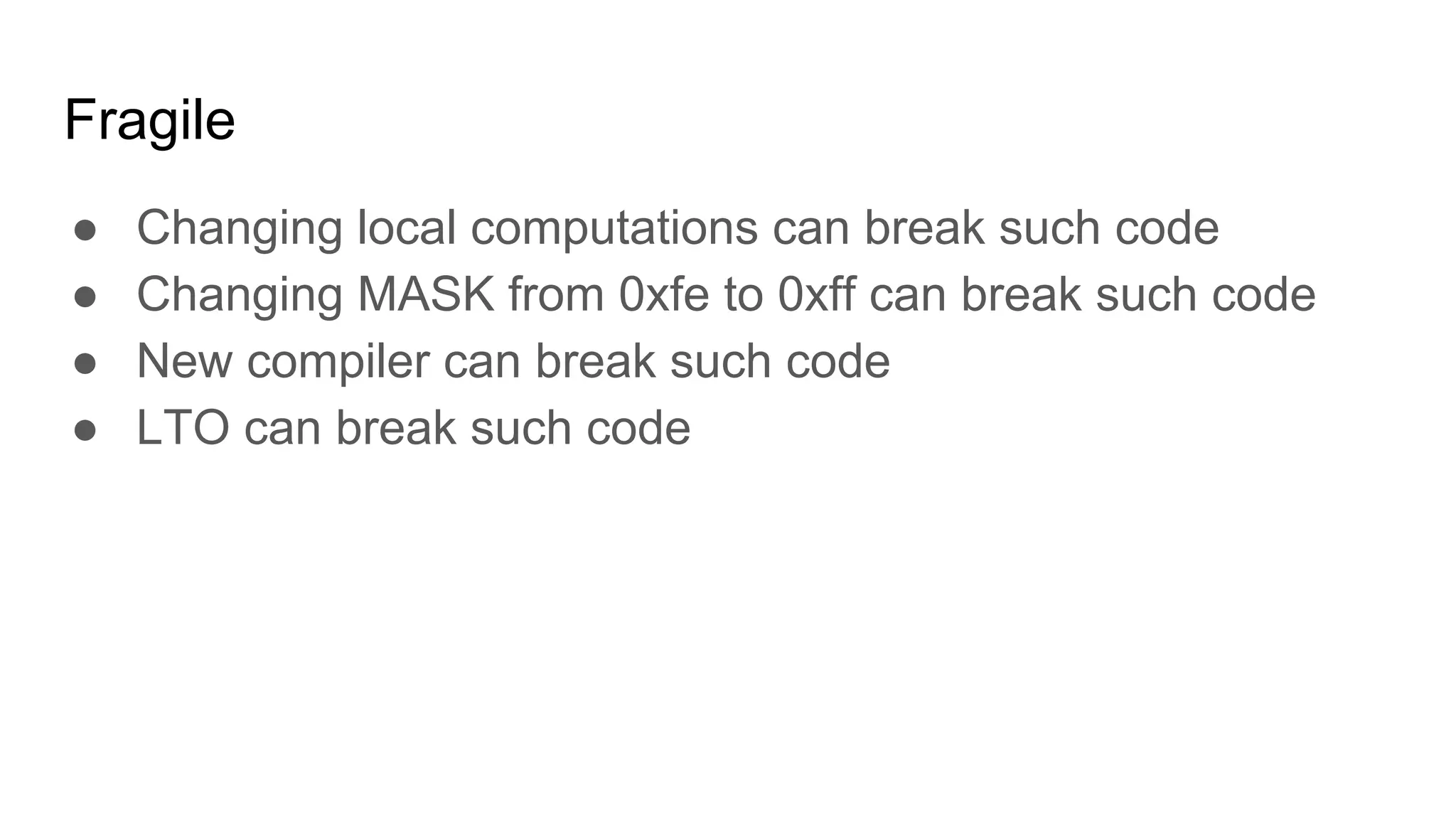The document discusses the critical role of the Linux kernel in security across various sectors, highlighting the significant number of unresolved bugs and vulnerabilities. It describes ongoing efforts to improve bug detection and mitigation through tools like syzkaller and various sanitizers, while emphasizing the urgent need for better testing practices and community involvement. The presentation illustrates the persistent challenges faced in maintaining kernel integrity, with a long list of bugs impacting system stability and security.
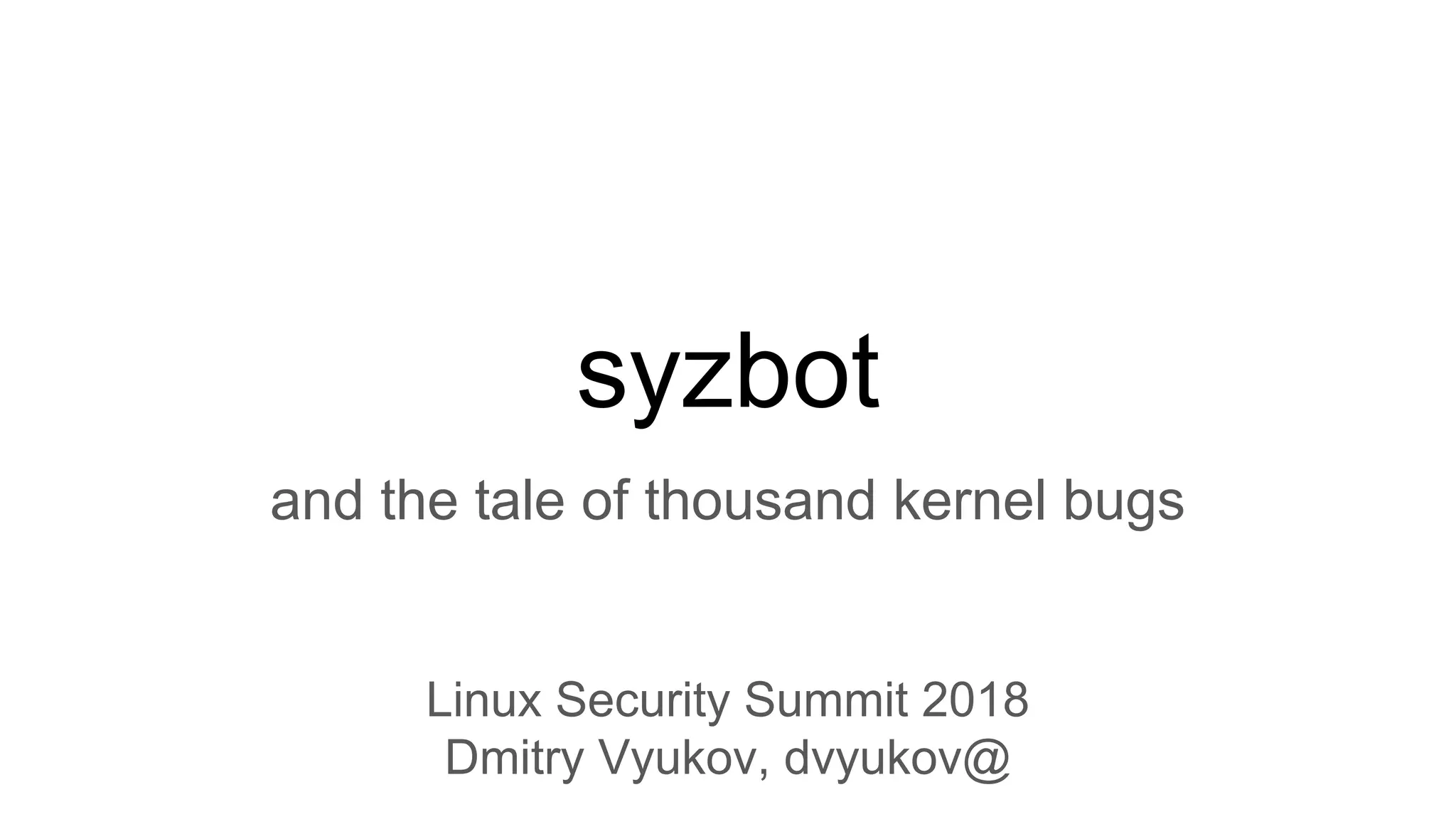
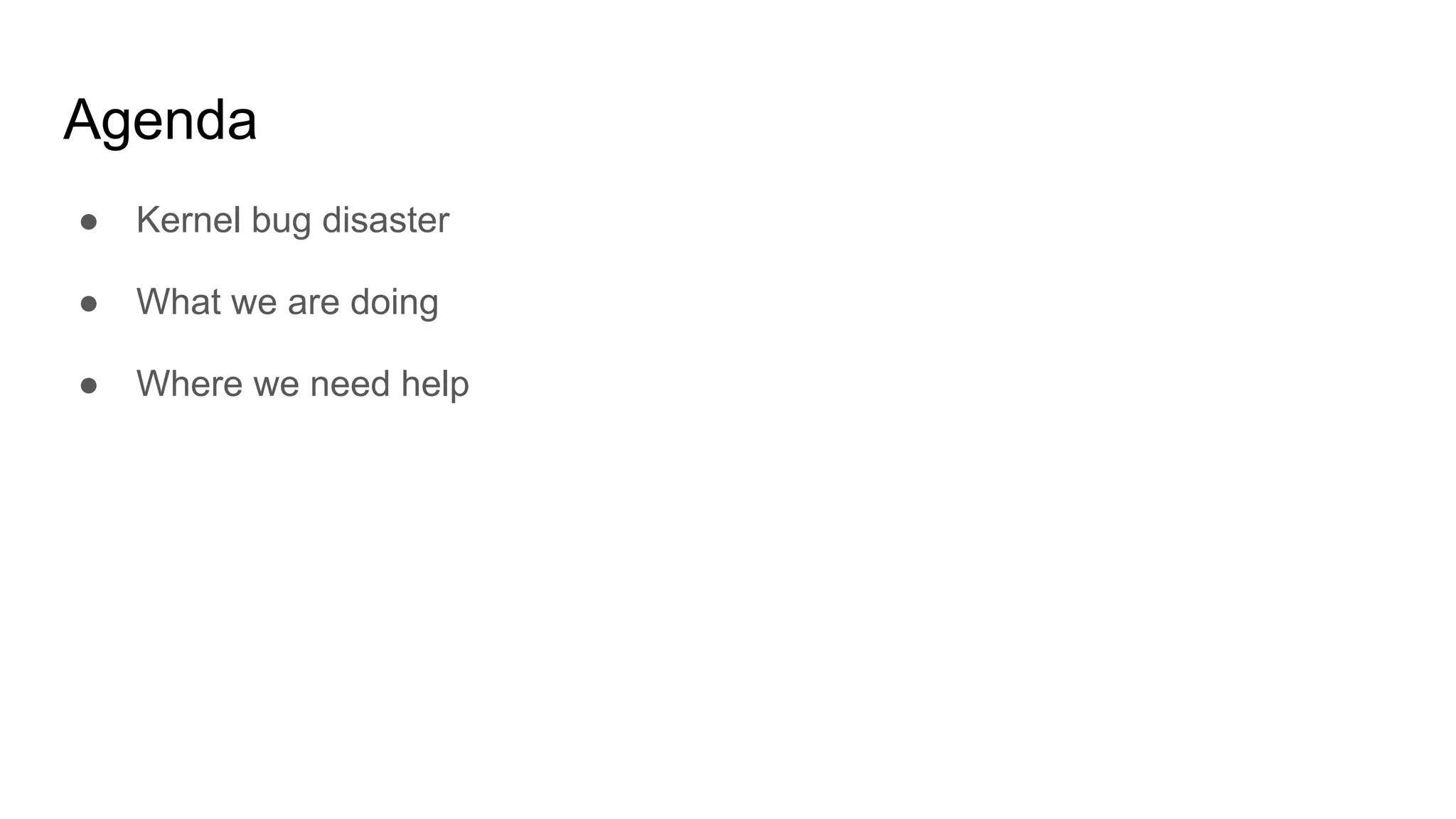
!["Civilization runs on Linux" [1]
● Android (2e9 users)
● Cloud, servers
● Desktops, notebooks, chromebooks
● Cars
● Air/Car Traffic Control, Nuclear Submarines, Power Plants
● Large Hadron Collider, International Space Station
● ...
● Our coffee machines!
[1] from SLTS project which aims at maintaining kernel releases for 20+ years for industrial use](https://image.slidesharecdn.com/syzbotlss2018-180828003040/75/syzbot-and-the-tale-of-million-kernel-bugs-3-2048.jpg)
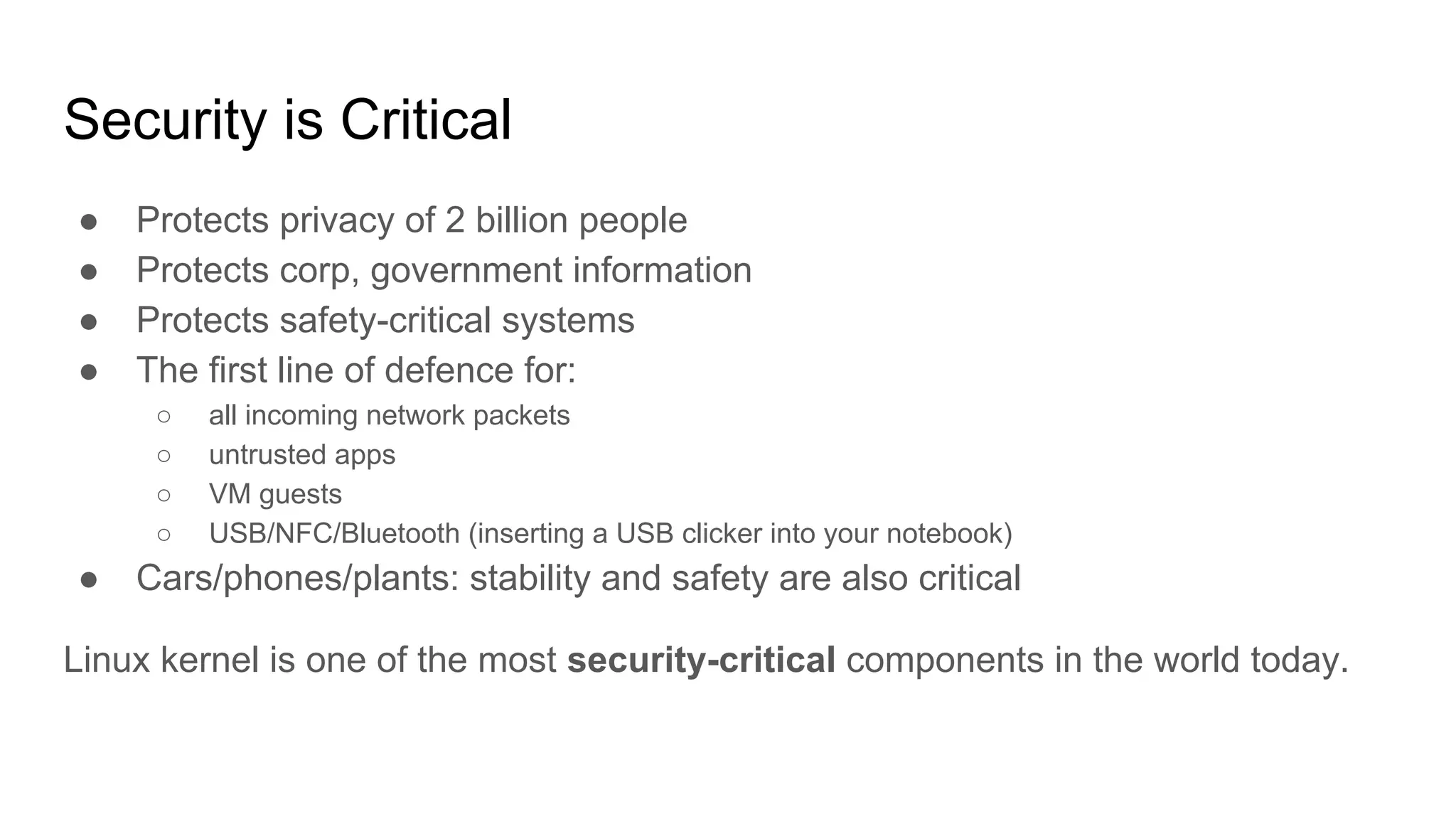
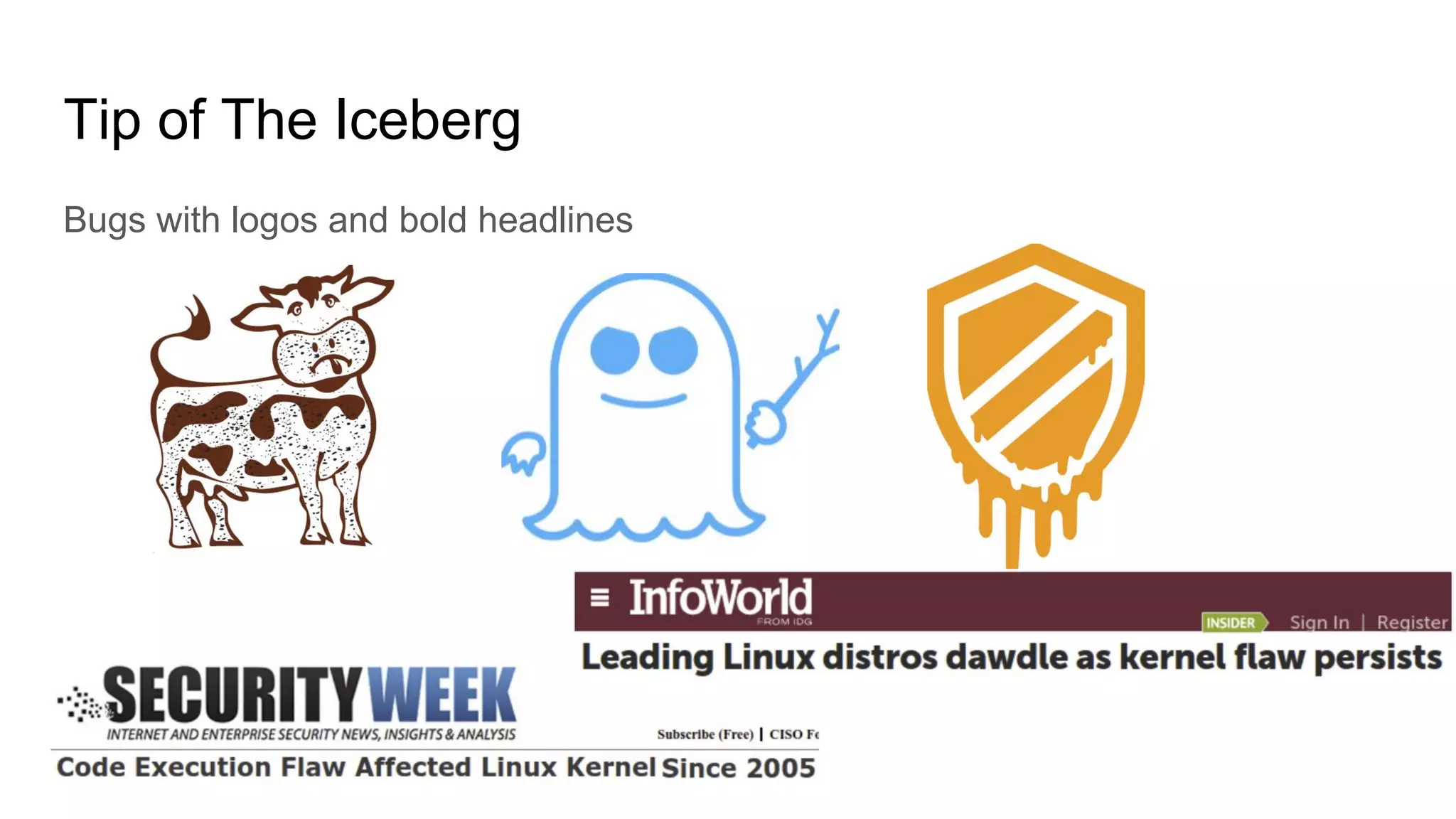

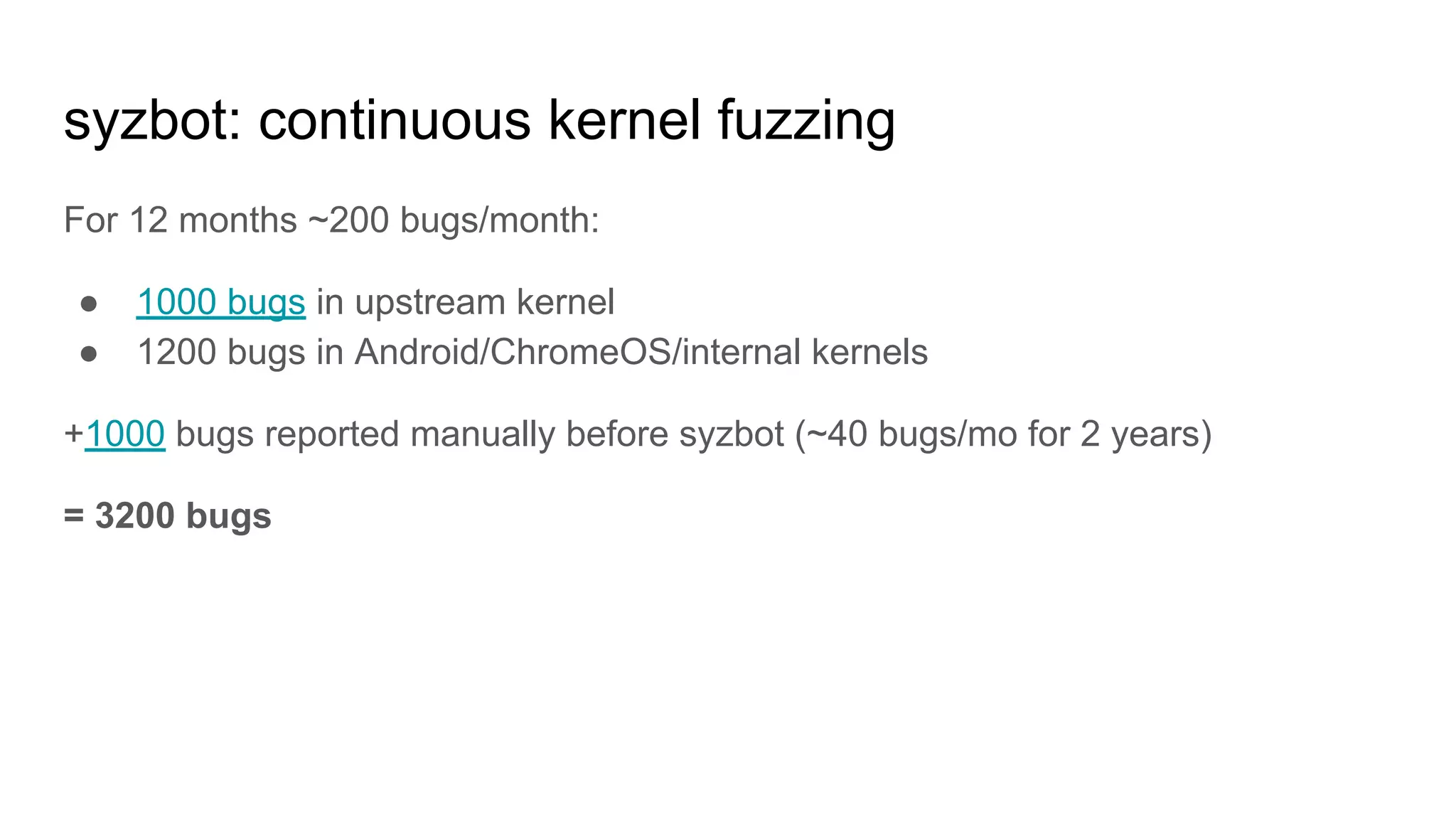
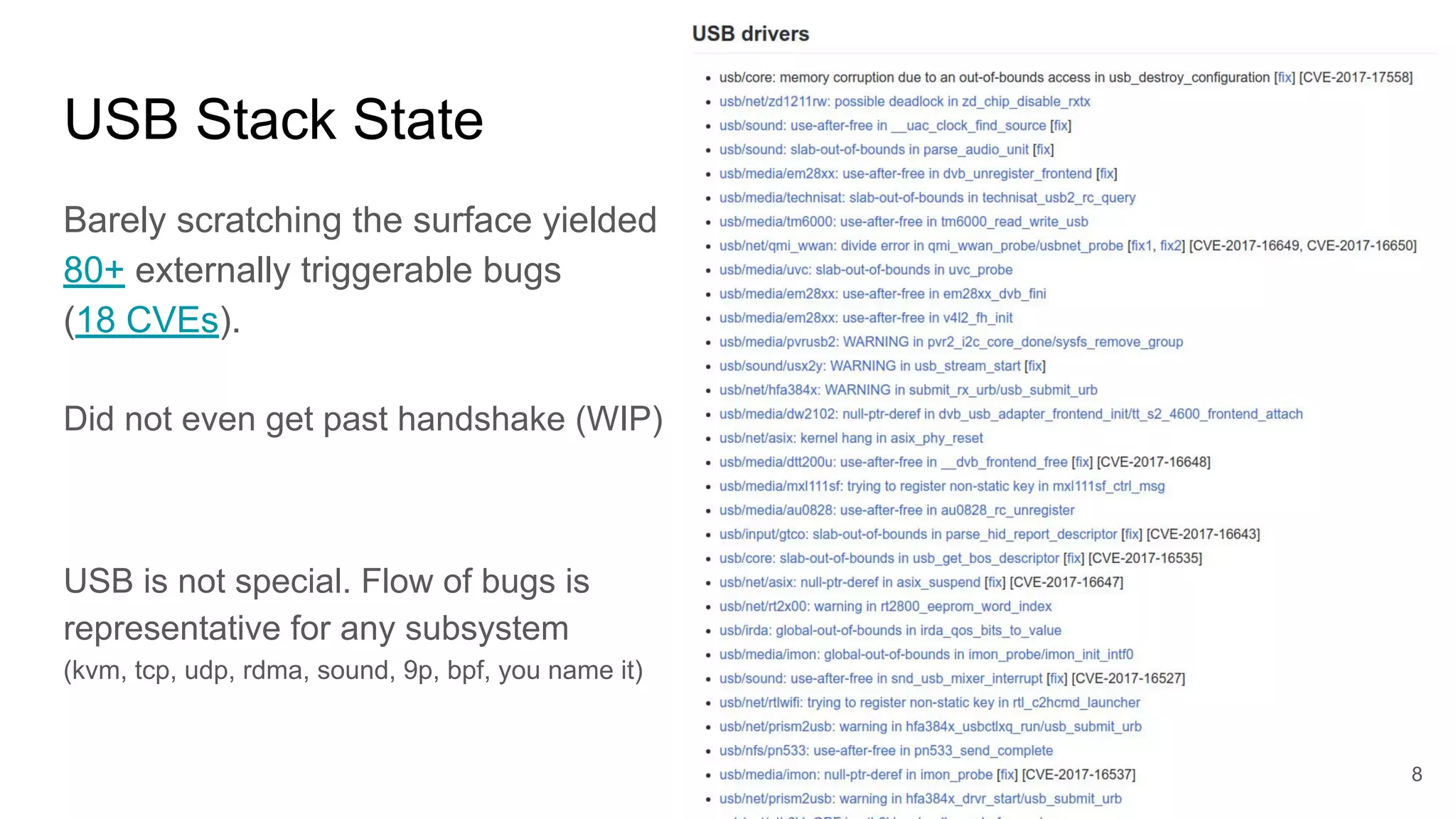
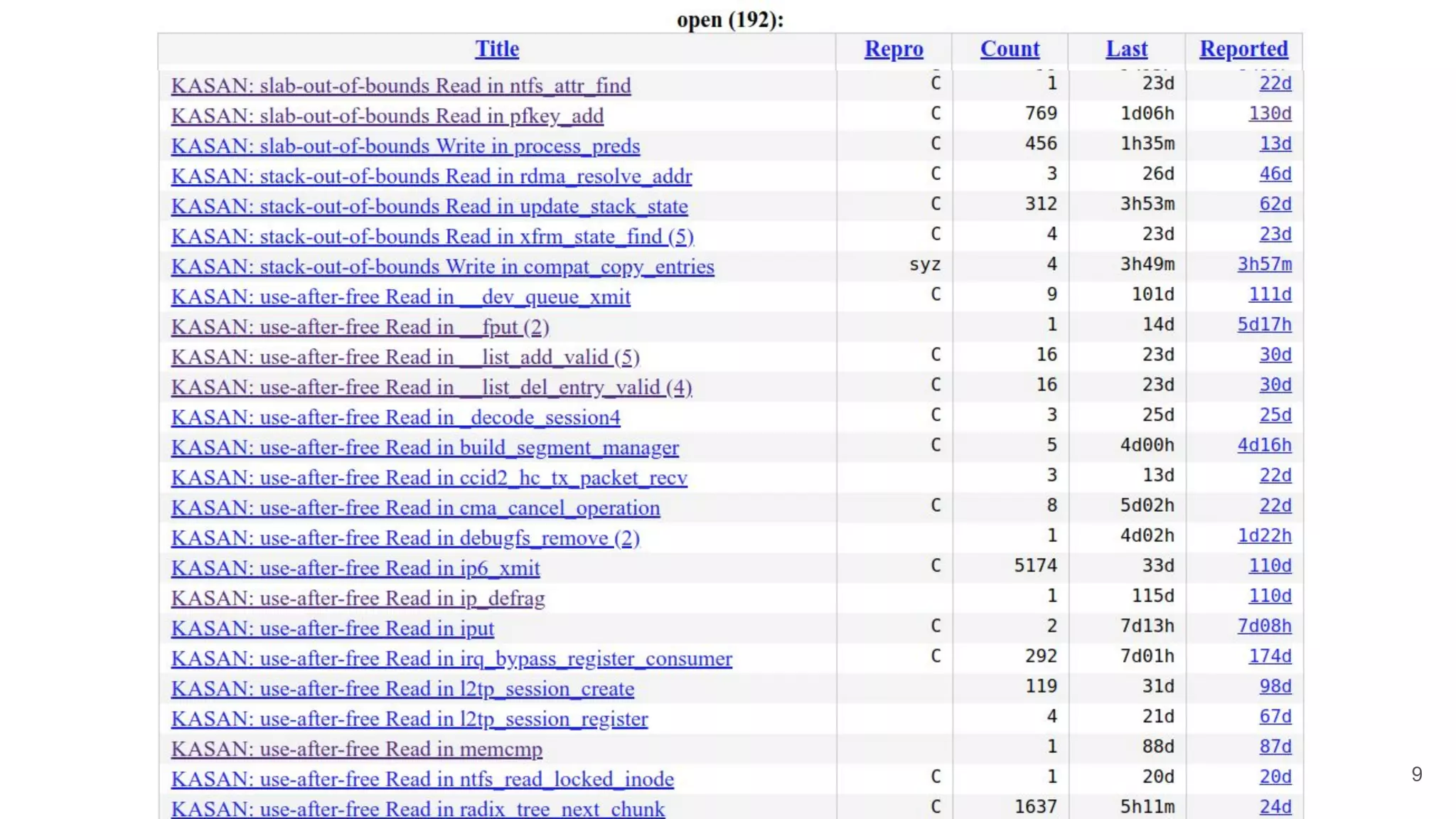
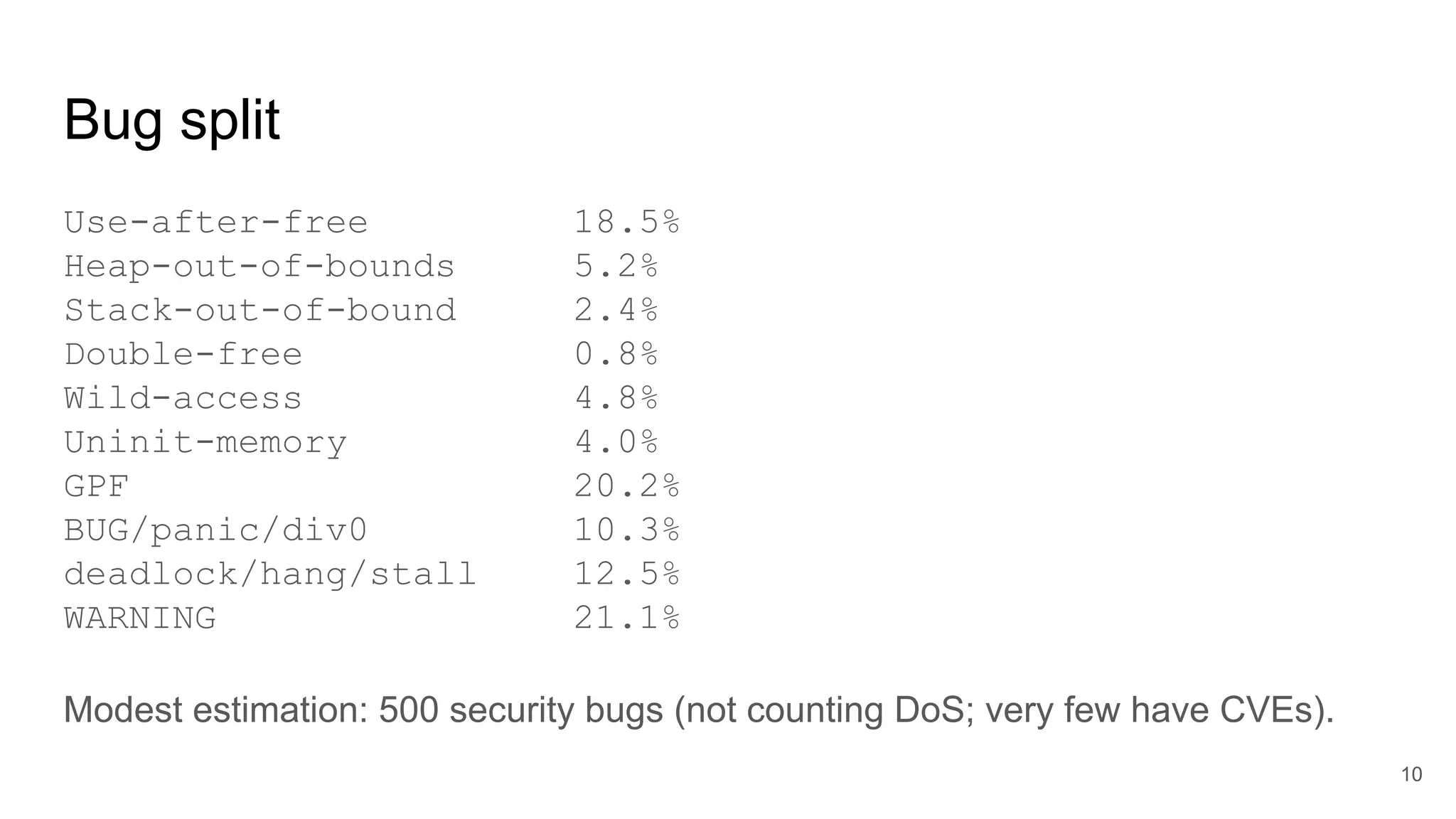
![Exploit != use-after-free
● "unresponsive" machine -> full guest->host escape
○ page ref leak
○ CVE-2017-2596 / kvm: fix page struct leak in handle_vmon
● WARNING -> inter-VM/process info leaks
○ failure to restore registers
○ WARNING in __switch_to / WARNING in fpu__copy
● stall -> remote network DoS
○ lockup in udp[v6]_recvmsg
○ anything remotely triggerable is a concern
11](https://image.slidesharecdn.com/syzbotlss2018-180828003040/75/syzbot-and-the-tale-of-million-kernel-bugs-11-2048.jpg)
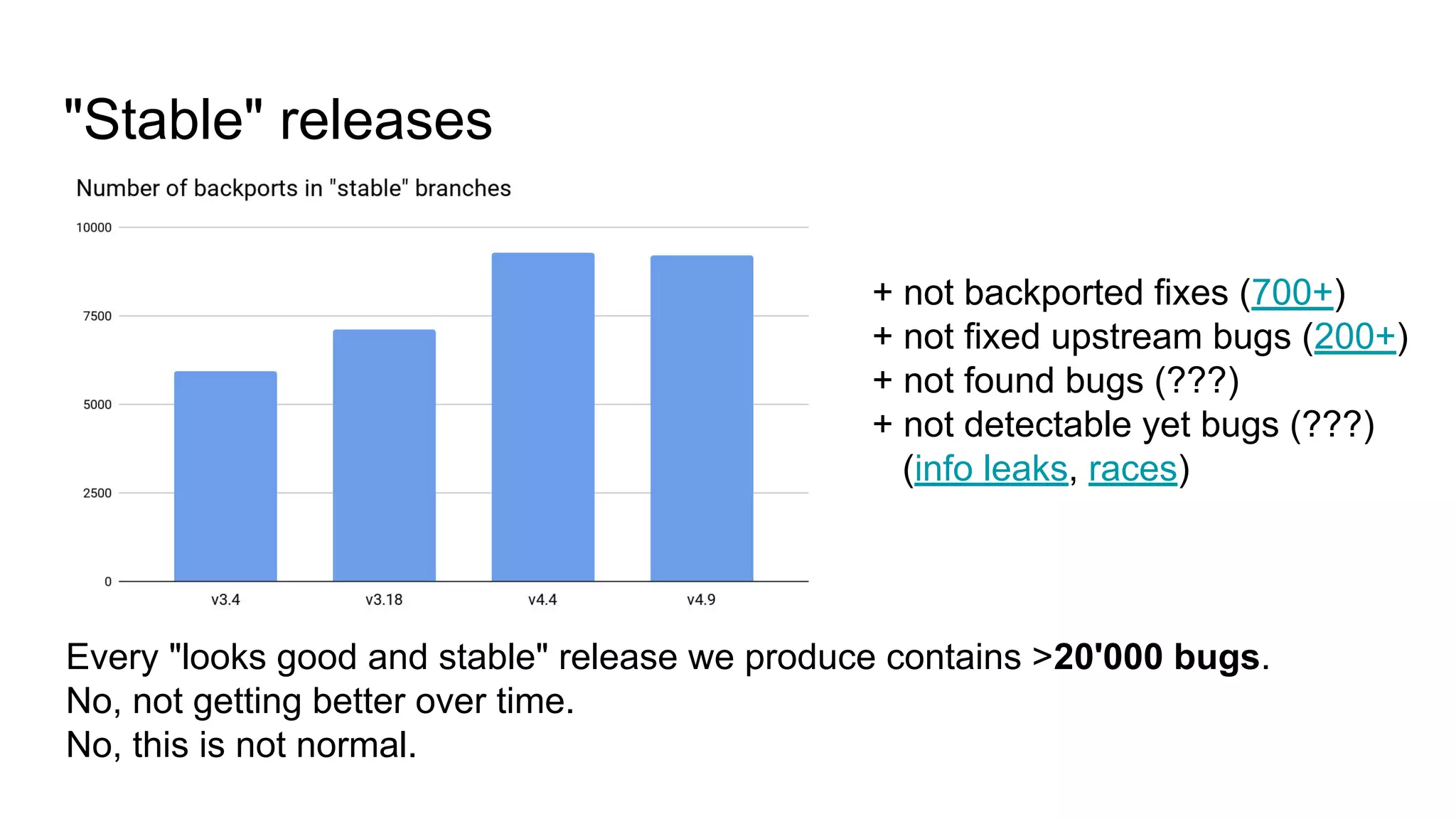
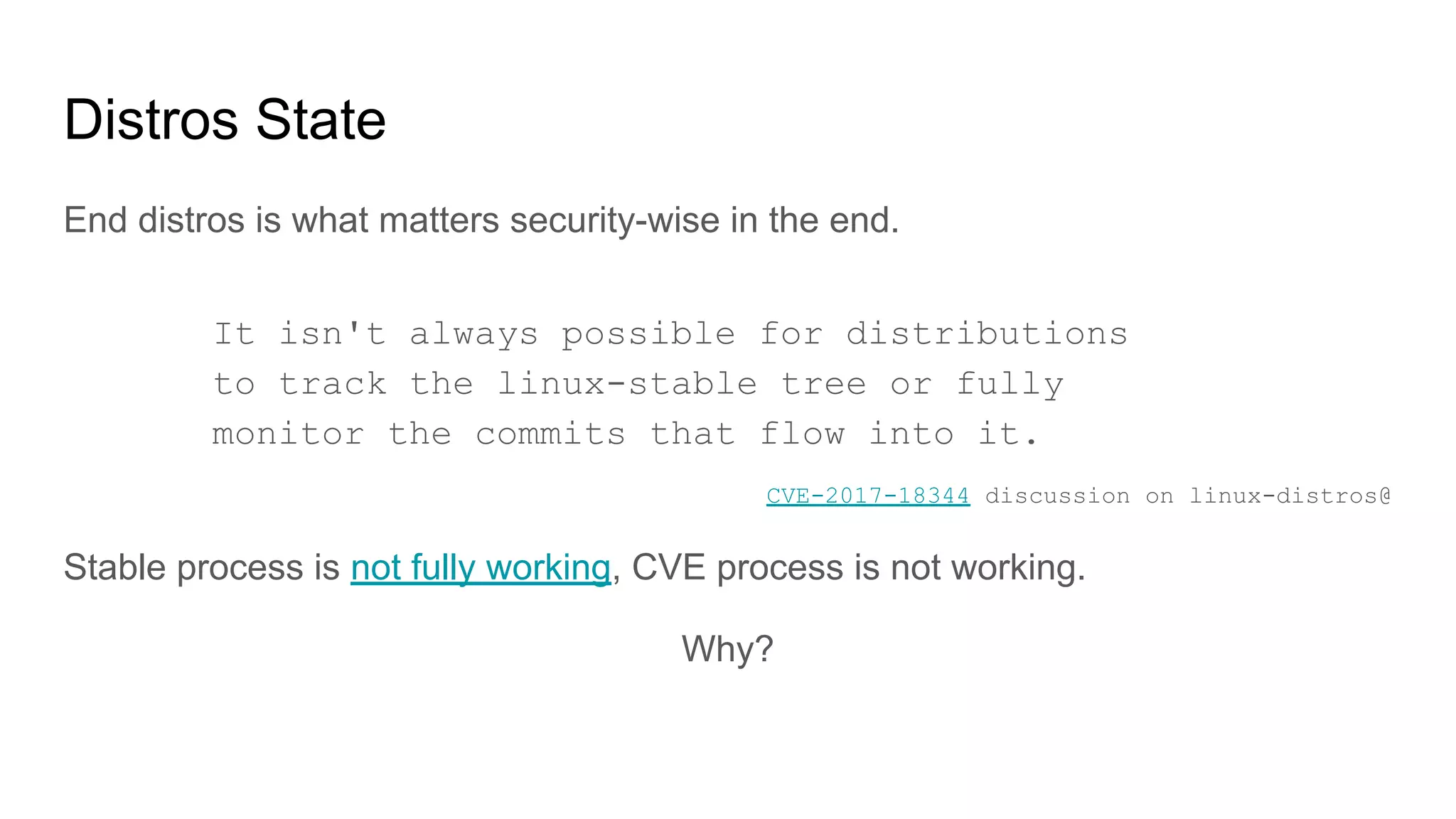
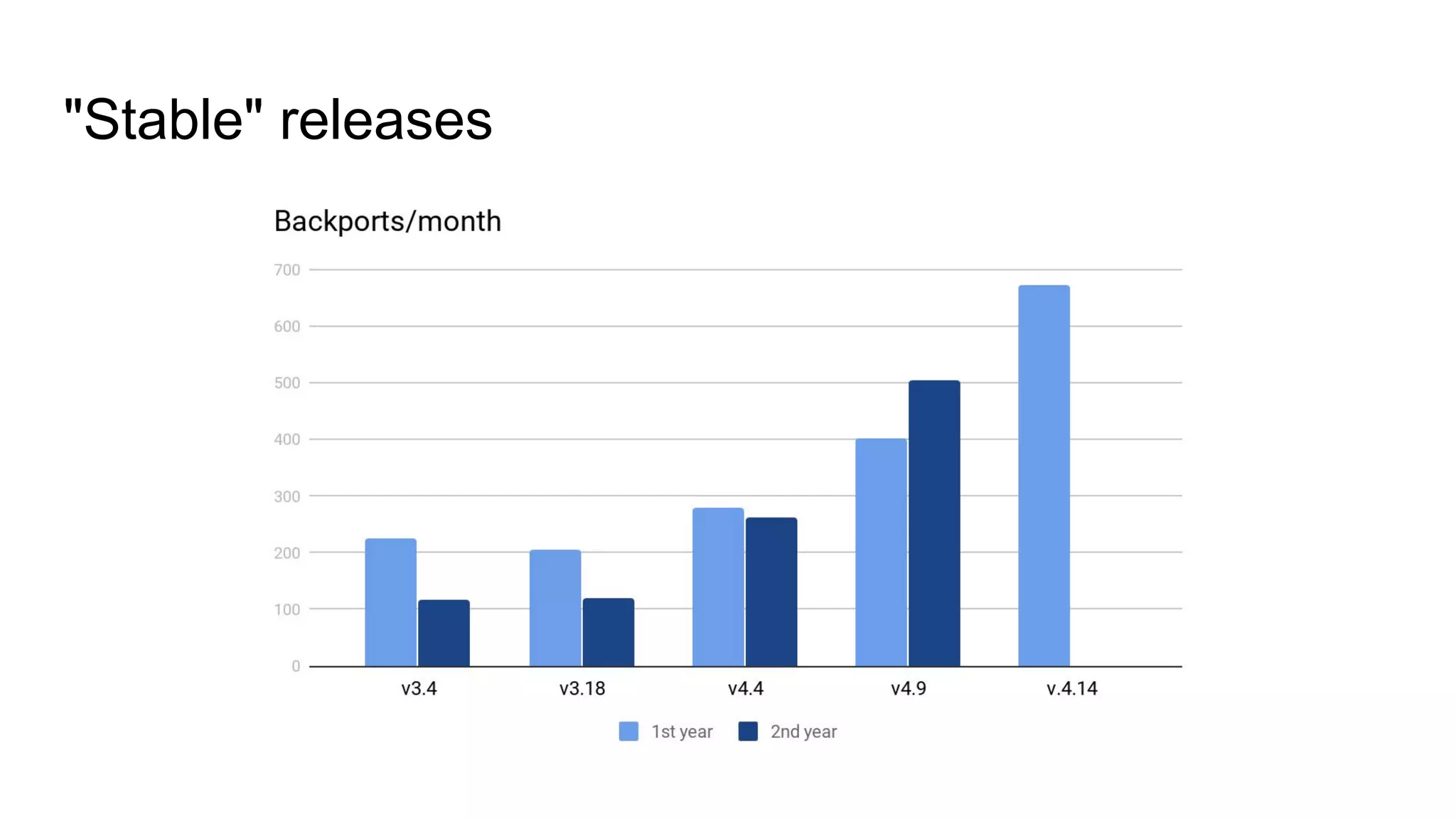
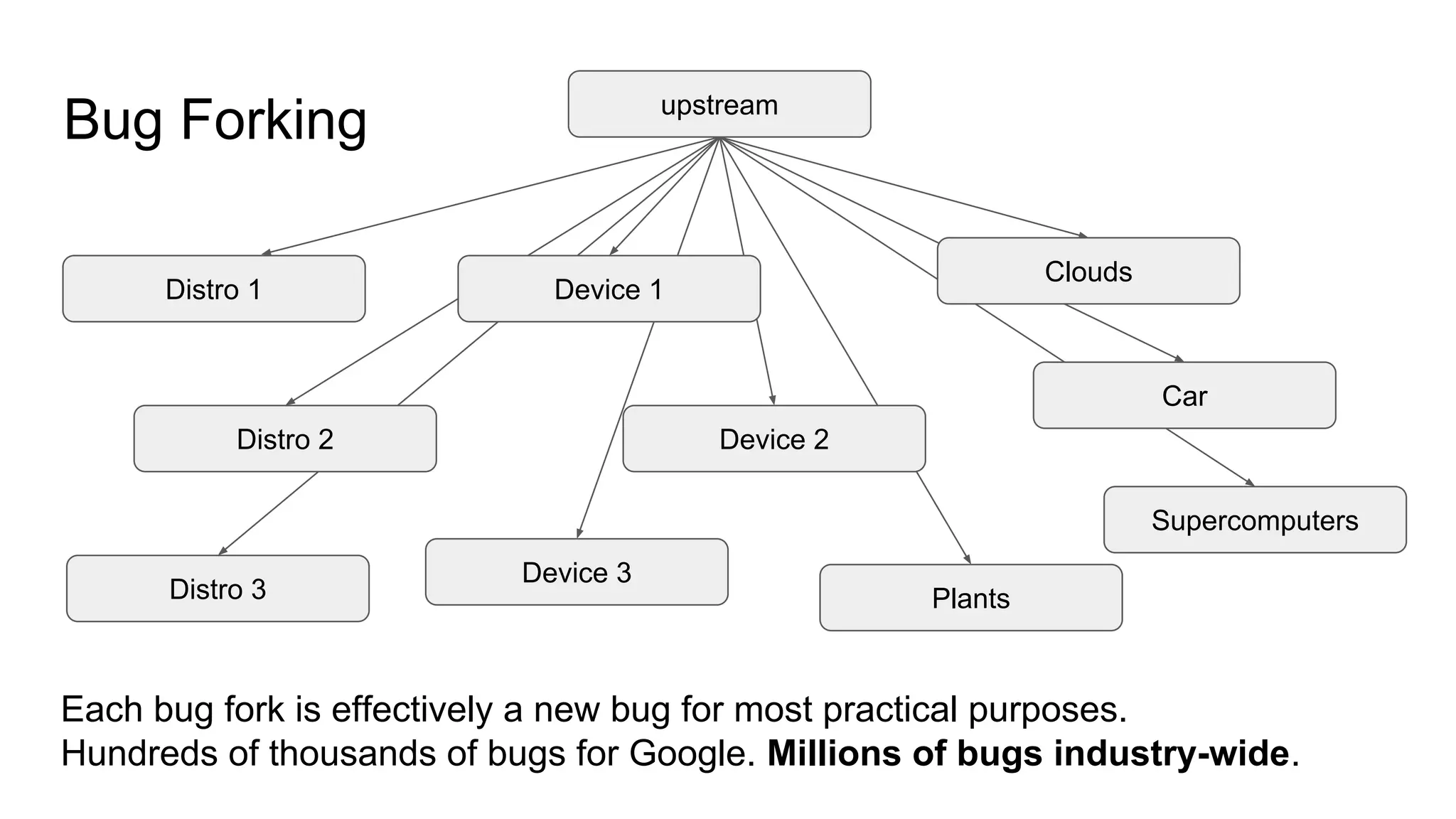

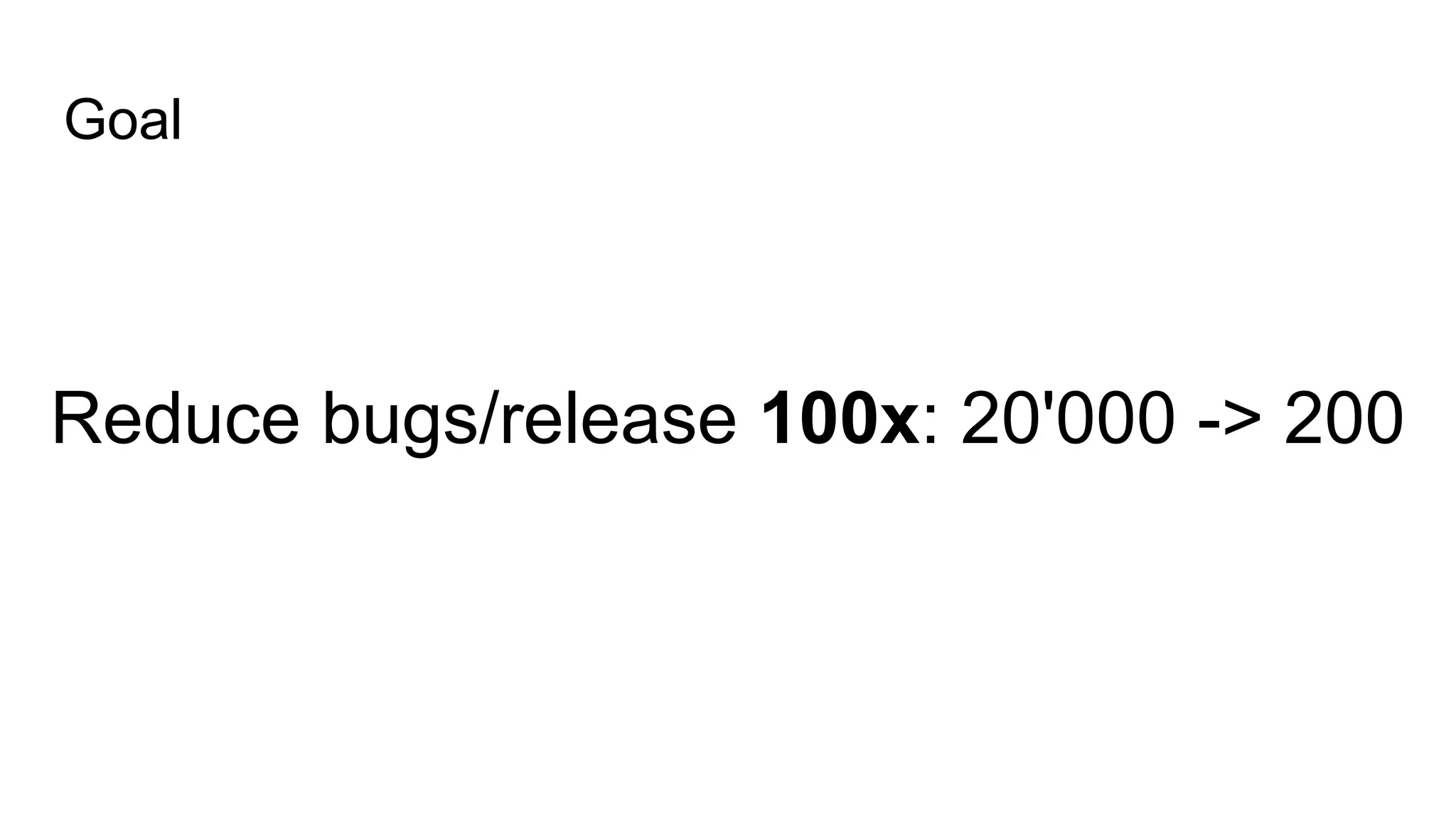
![Existing Defences Are Not Enough
● Attack surface reduction
○ large surface is still open
○ most subsystems are still relevant (USB for clients, namespaces for servers)
● Mitigations [1]
○ can't mitigate hundreds of arbitrary memory corruptions (assume there are few bugs)
○ don't mitigate lots of bug types (races, uninit memory, write what/where)
○ some are not backported/enabled (performance!)
[1] KASLR, REFCOUNT_FULL, STACKPROTECTOR, VMAP_STACK, SLAB_FREELIST_RANDOM, STRUCTLEAK, RANDSTRUCT, etc
18](https://image.slidesharecdn.com/syzbotlss2018-180828003040/75/syzbot-and-the-tale-of-million-kernel-bugs-18-2048.jpg)
![Existing Defences Are Not Enough (2)
● Selinux/namespaces/fs-verity
○ logical protection: directly assume that kernel is not buggy ([1])
○ namespaces open even larger attack surface ([1], [2], [3], [4])
● Hiding buggy code "under root"
○ SELinux/AppArmor/IMA/module signing restrict root
○ root is not trusted on some systems (Android)
○ user still needs to do the thing, so they just issue sudo left and right
19](https://image.slidesharecdn.com/syzbotlss2018-180828003040/75/syzbot-and-the-tale-of-million-kernel-bugs-19-2048.jpg)

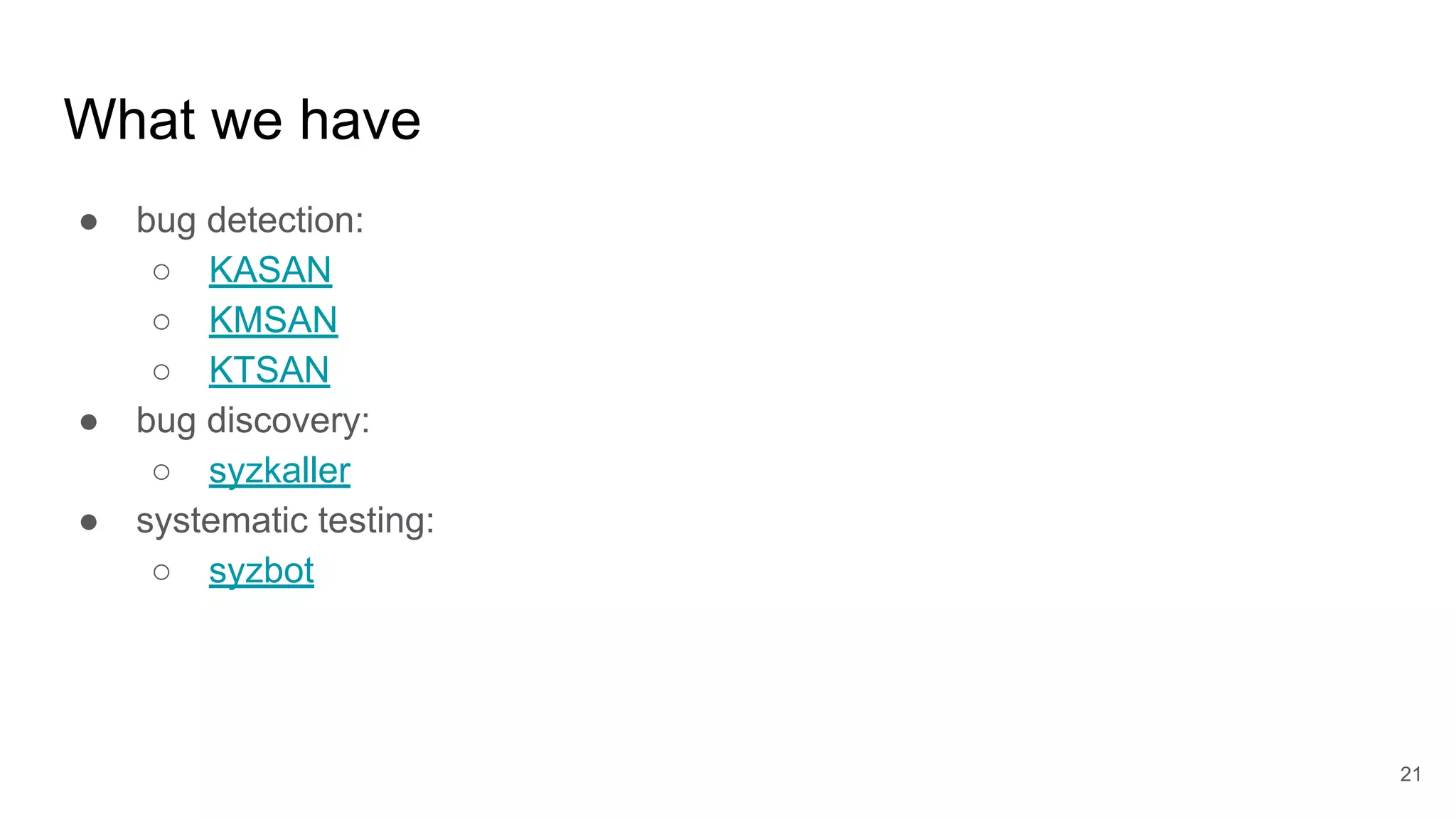
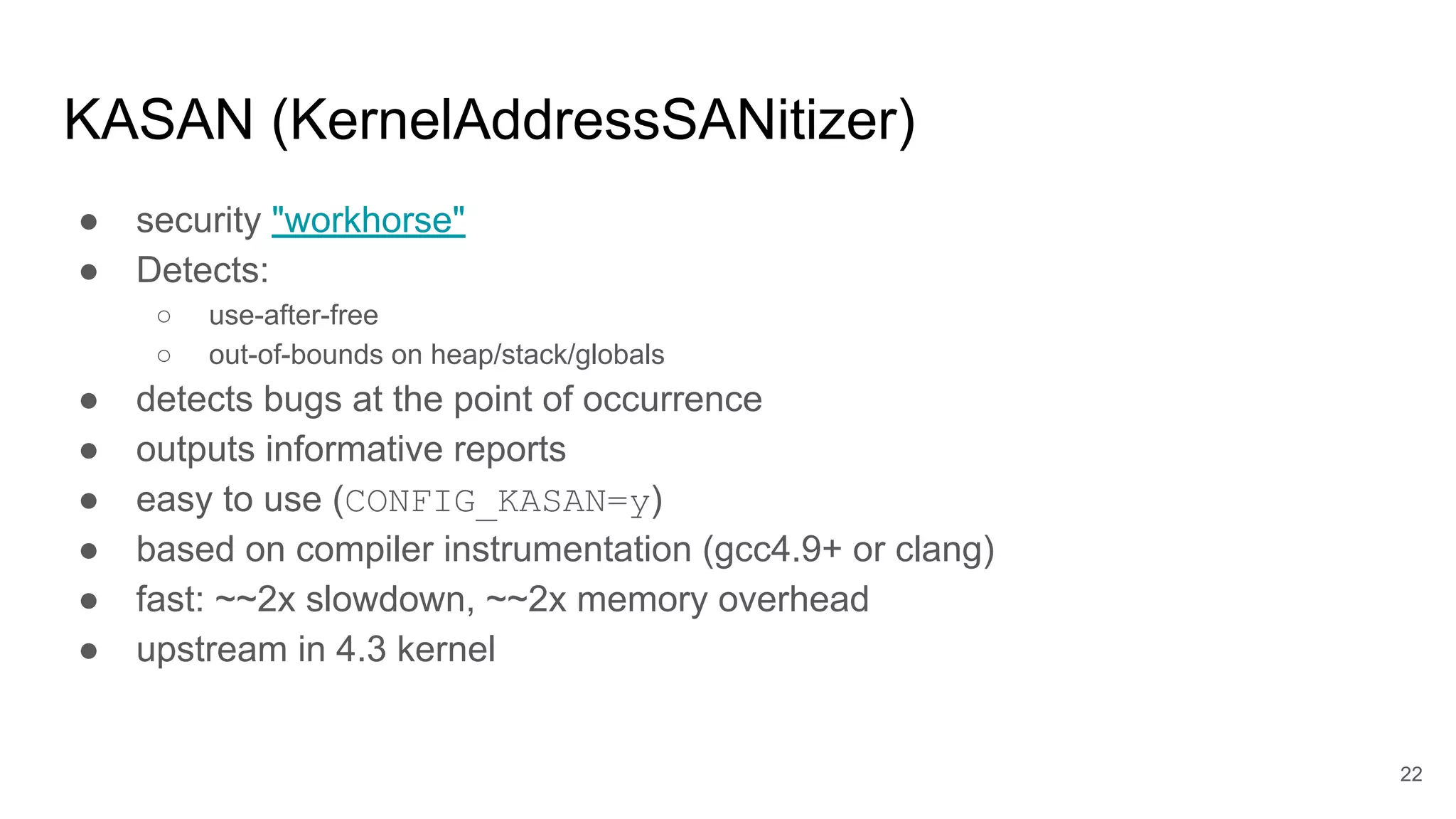
![KMSAN (KernelMemorySanitizer)
Detects uses of uninitialized values.
In the context of security:
● information leaks (local and remote) [easy to exploit: 1, 2]
● control-flow subversion [1]
● data attacks (uninit uid) [1, 2]
Not upstreamed yet (on github), work-in-progress.
Already found 50+ bugs.
23](https://image.slidesharecdn.com/syzbotlss2018-180828003040/75/syzbot-and-the-tale-of-million-kernel-bugs-23-2048.jpg)
![KTSAN (KernelThreadSanitizer)
Detects data races.
Kernel data races represent security threat:
● TOCTOU (time-of-check-time-of-use) ([1])
● uninit/wrong credentials ([1])
● racy use-after-frees/double-frees ([1], [2], [3], [4])
Prototype on github, frozen due to lack of resources, found 20+ bugs.
Main obstacle: kernel is full of "benign" races (undefined behavior in C).
24](https://image.slidesharecdn.com/syzbotlss2018-180828003040/75/syzbot-and-the-tale-of-million-kernel-bugs-24-2048.jpg)
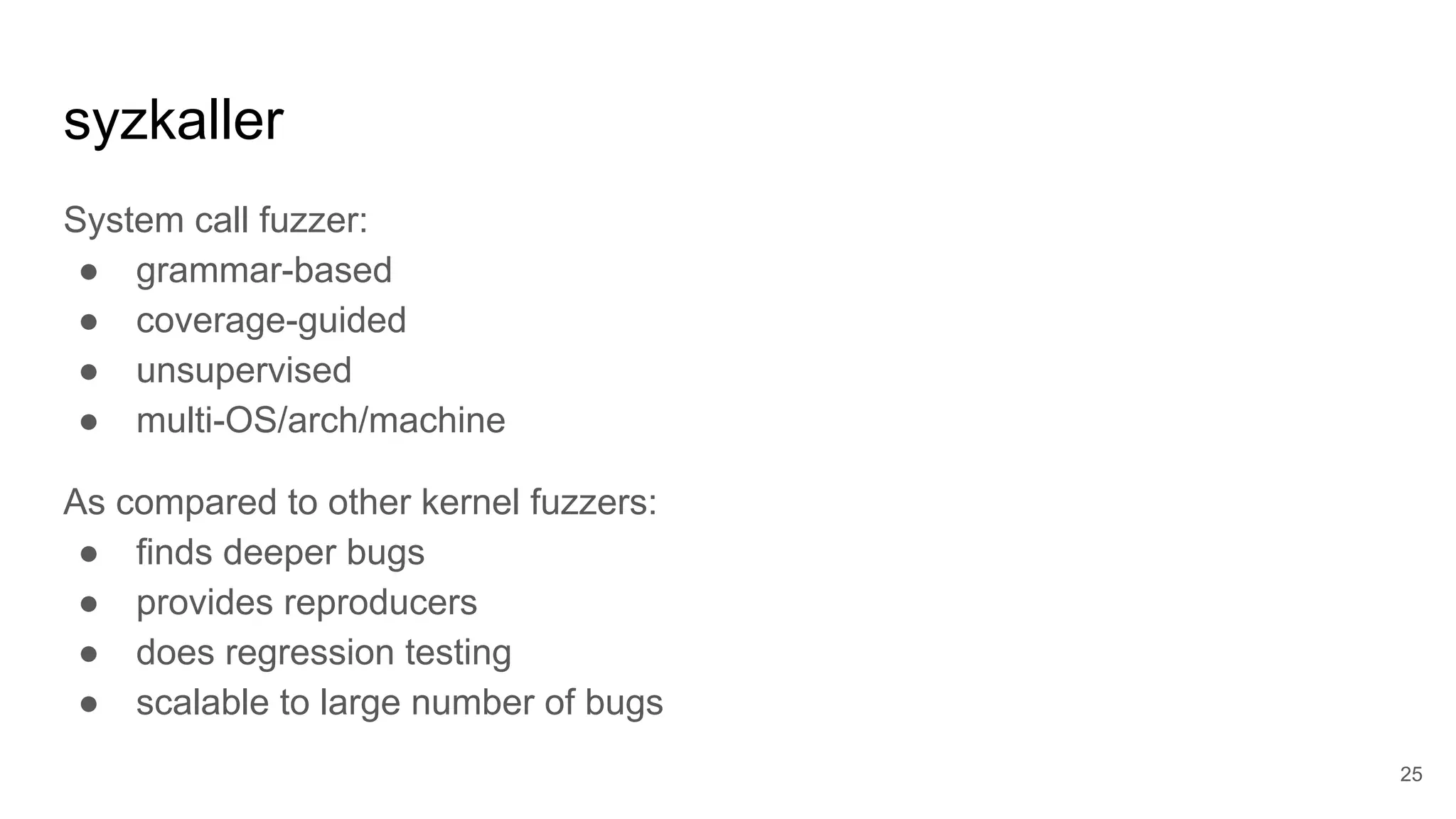
![Syscall Descriptions
Declarative description of system calls:
open(file filename, flags flags[open_flags],
mode flags[open_mode]) fd
read(fd fd, buf buffer[out], size len[buf])
close(fd fd)
Tests only what's described.
26](https://image.slidesharecdn.com/syzbotlss2018-180828003040/75/syzbot-and-the-tale-of-million-kernel-bugs-26-2048.jpg)
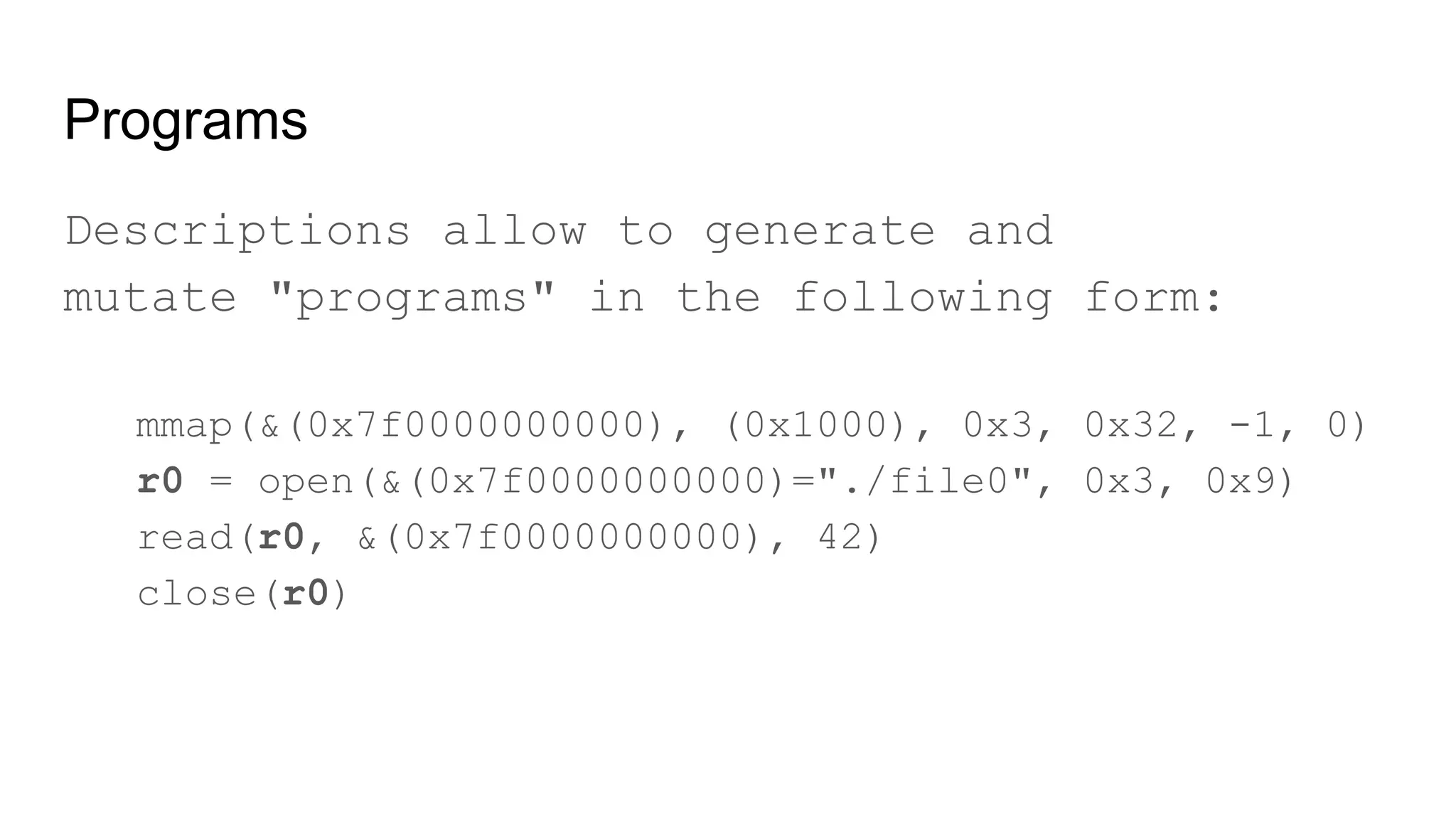
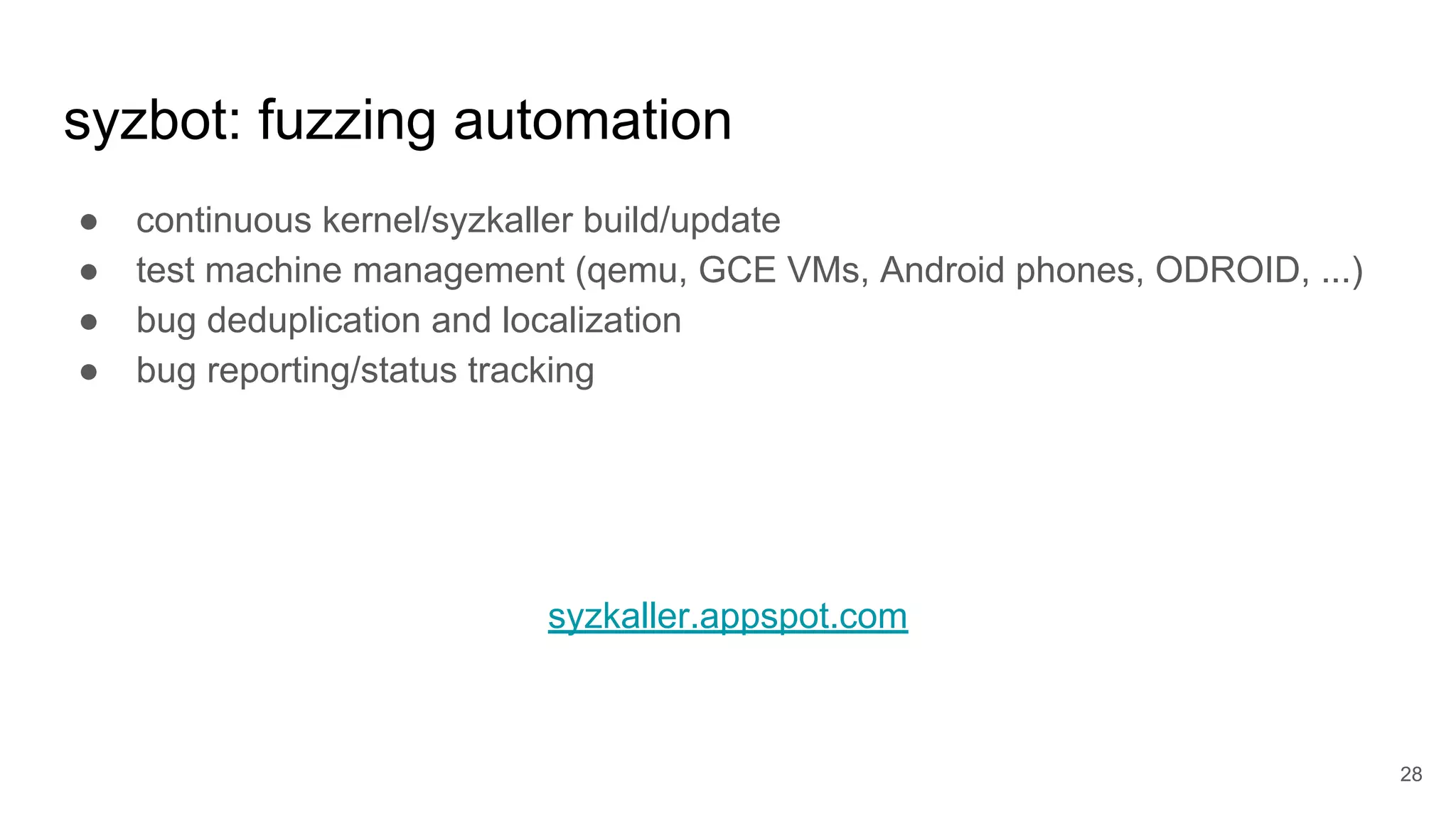

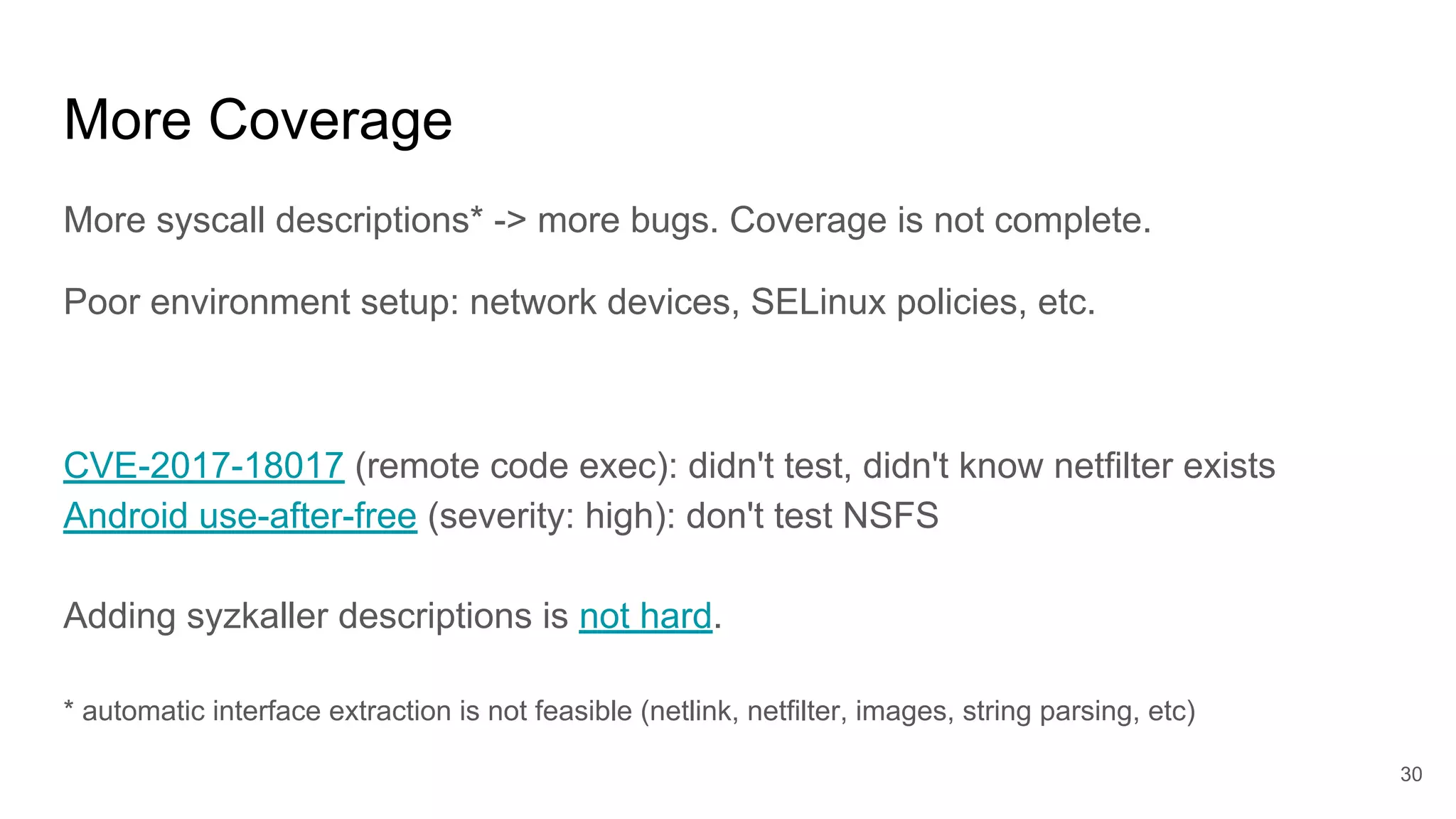
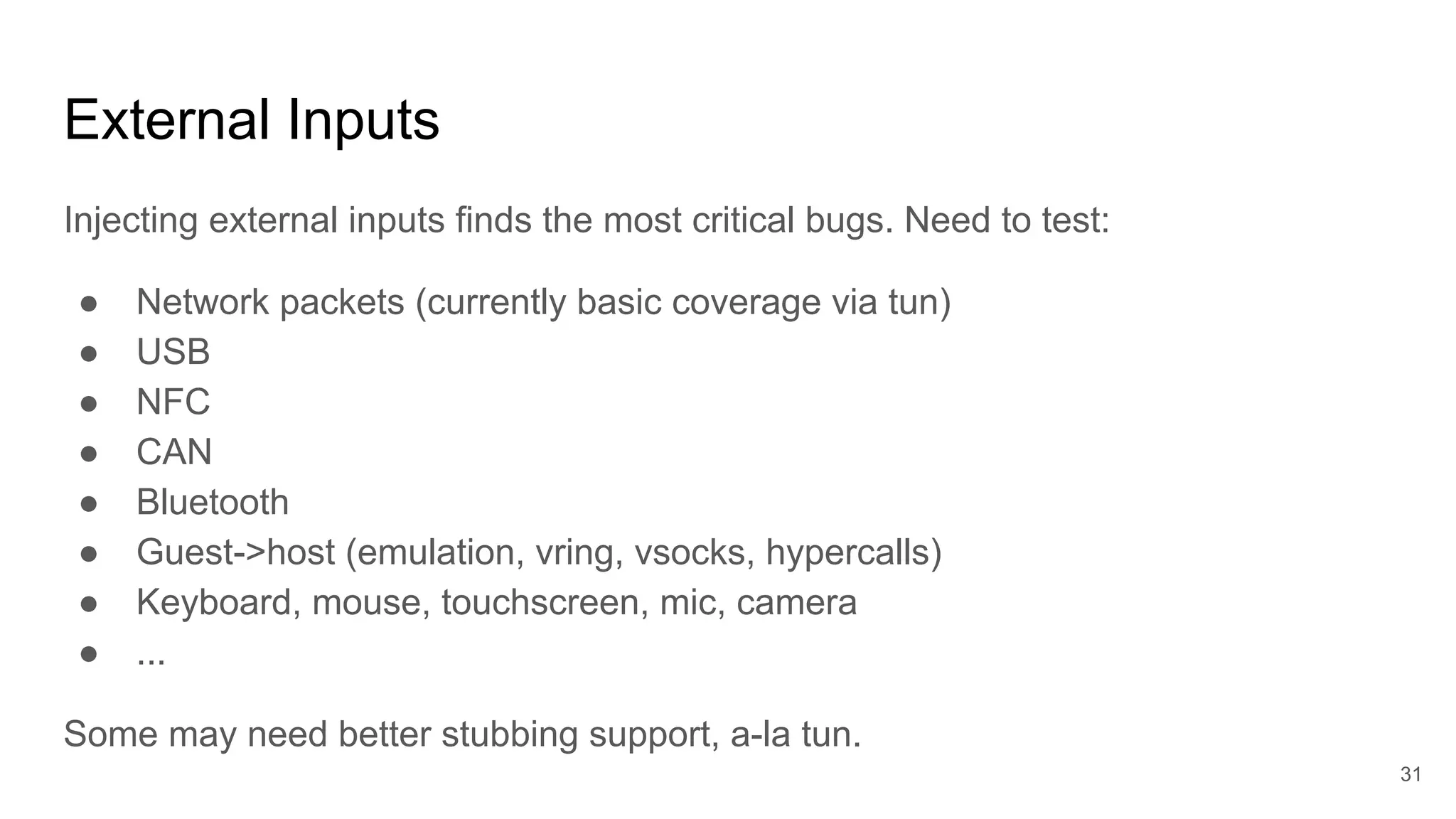
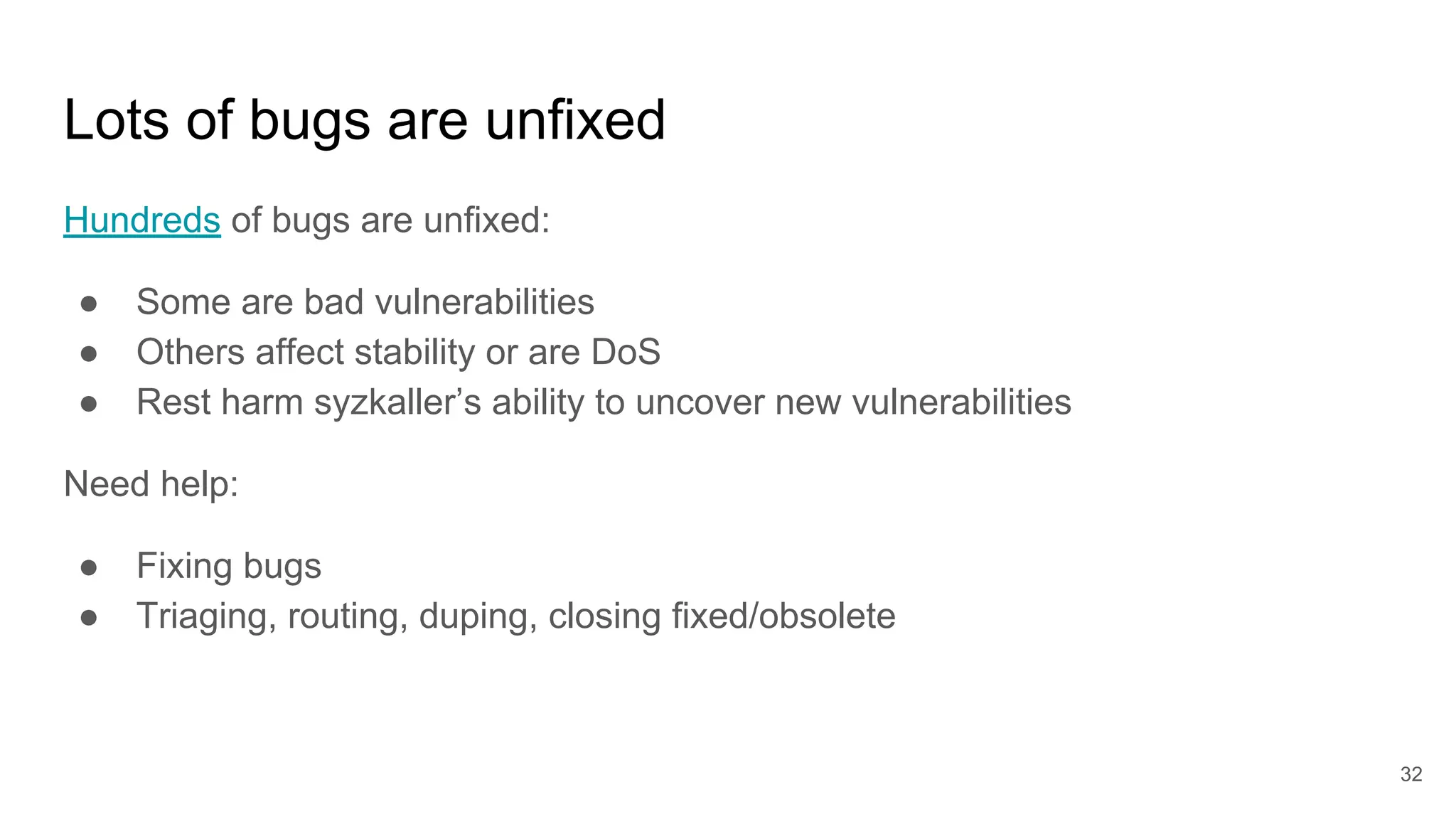

![KASAN: manual checks: SKB
SKB: core networking data structure, holds packet data.
Uses proactive/amortized growth:
if (pskb_may_pull(skb, 2) {
// can access skb->data[0-1], but not [2]
if (pskb_may_pull(skb, 3) {
// now can access bytes [0-2], but previous skb->data is invalidated
}
}
Very easy to get wrong, bug nest: dozens of remotely-triggerable bugs.
Can make sense to do strict/exact growth under KASAN.](https://image.slidesharecdn.com/syzbotlss2018-180828003040/75/syzbot-and-the-tale-of-million-kernel-bugs-34-2048.jpg)
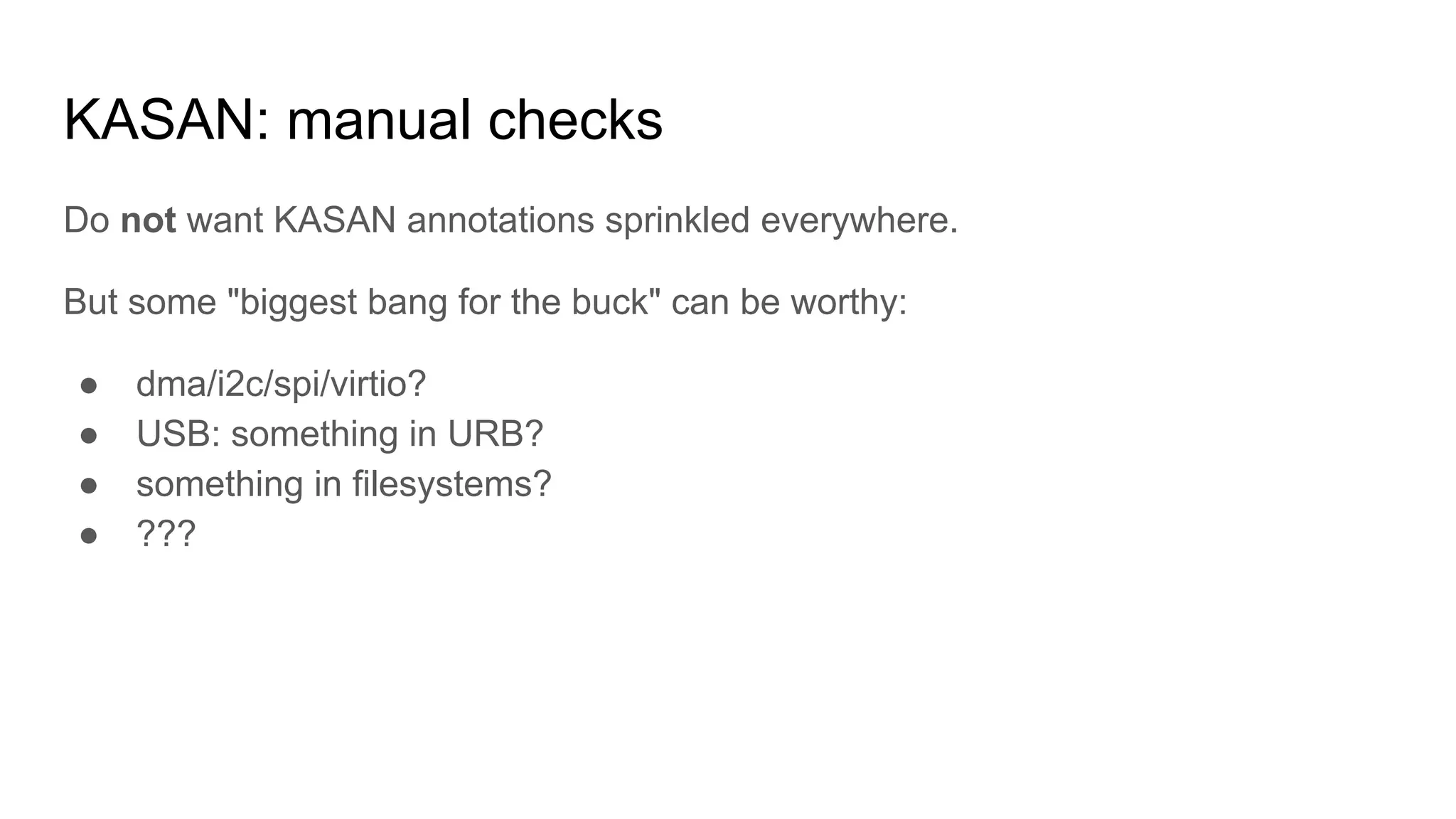
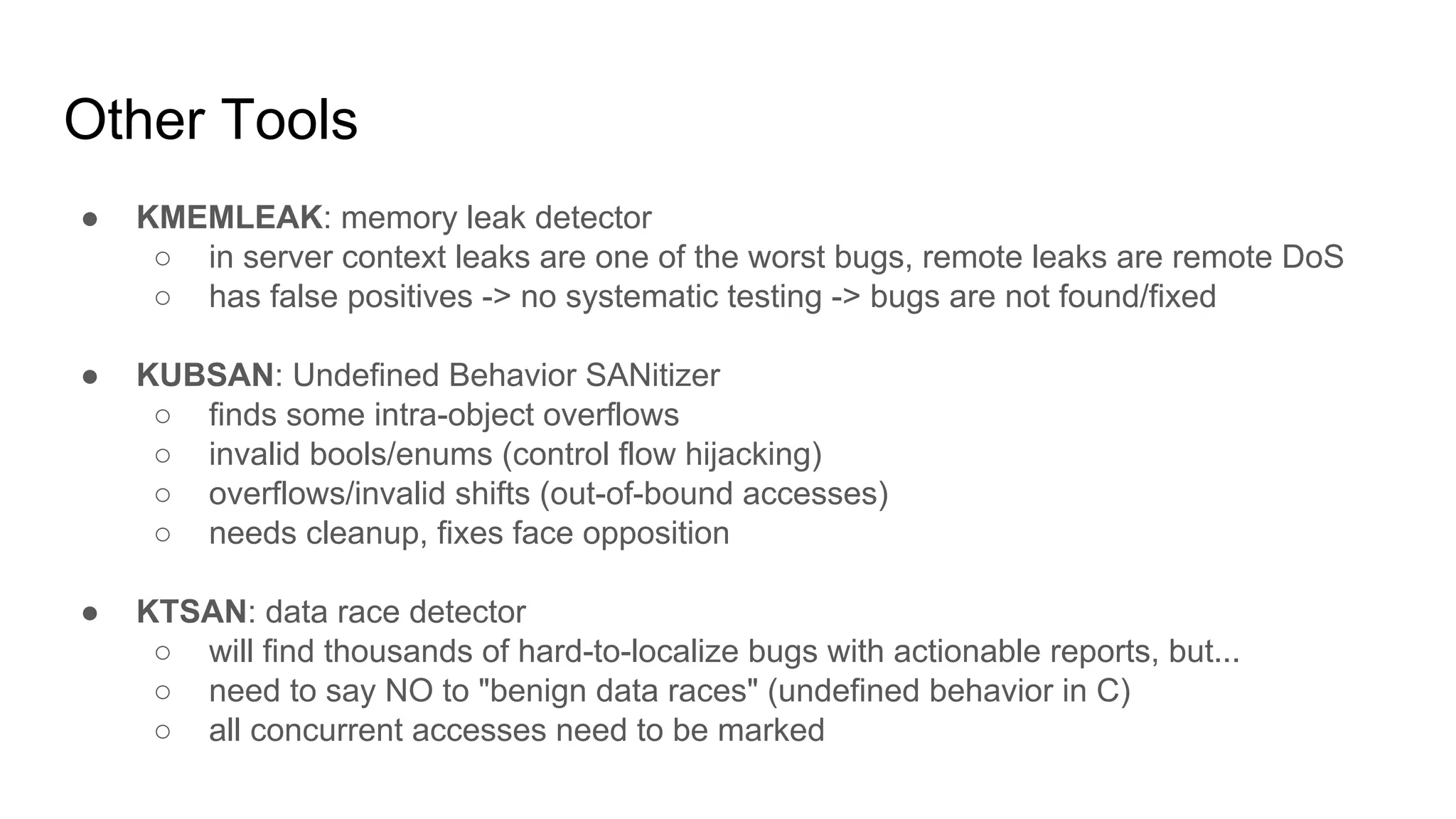
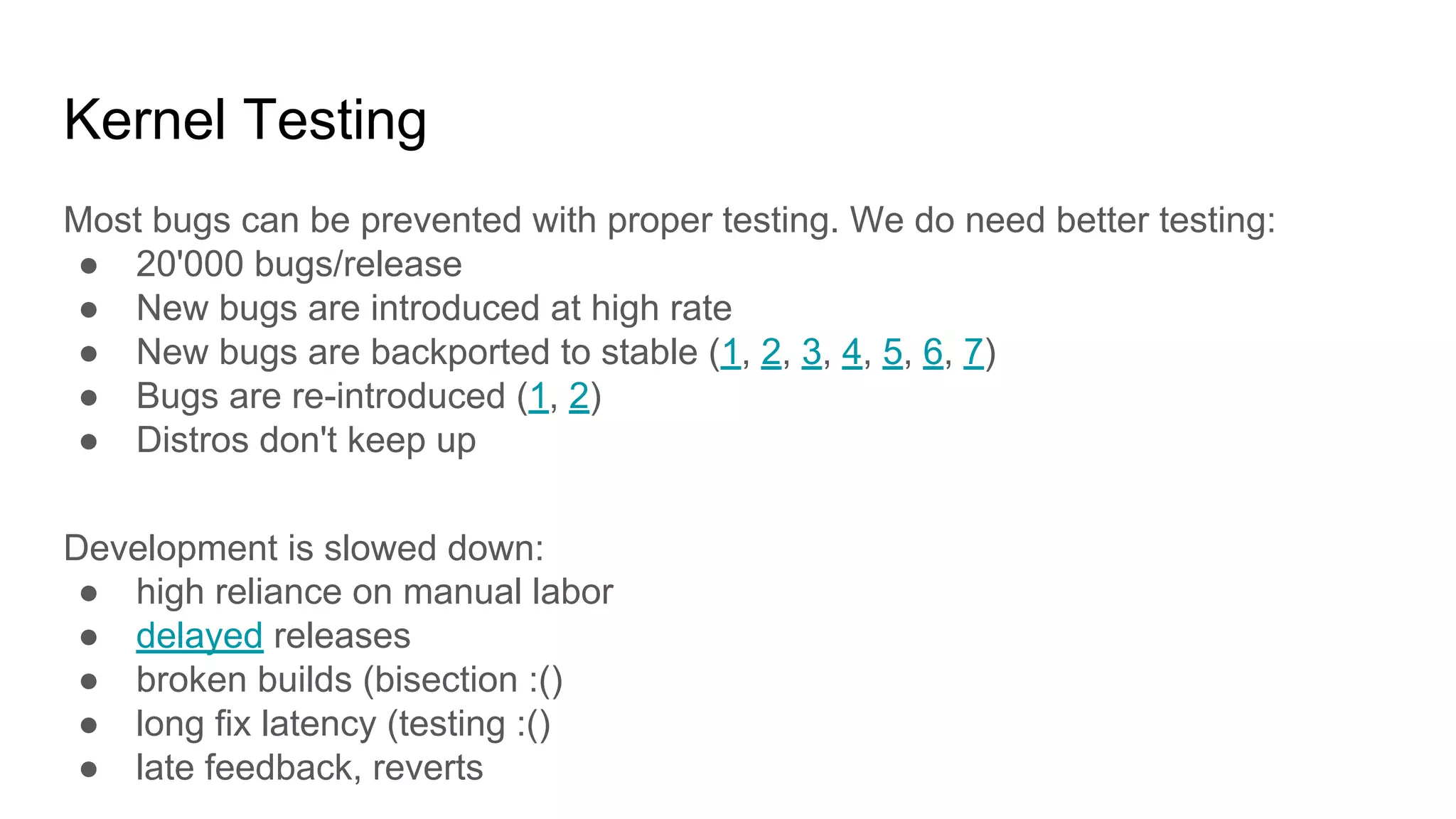
![Testing MUST be part of dev process
● Tests need to be easier to write, discover and run
○ userspace tests
○ in-kernel tests with hardware mocking (kunit)
● Tests for new functionalities, regression tests
● Automated continuous testing
● Integration into dev process, presubmit testing
● Use of all available tools (trivial bugs [1], [2], [3])](https://image.slidesharecdn.com/syzbotlss2018-180828003040/75/syzbot-and-the-tale-of-million-kernel-bugs-38-2048.jpg)

